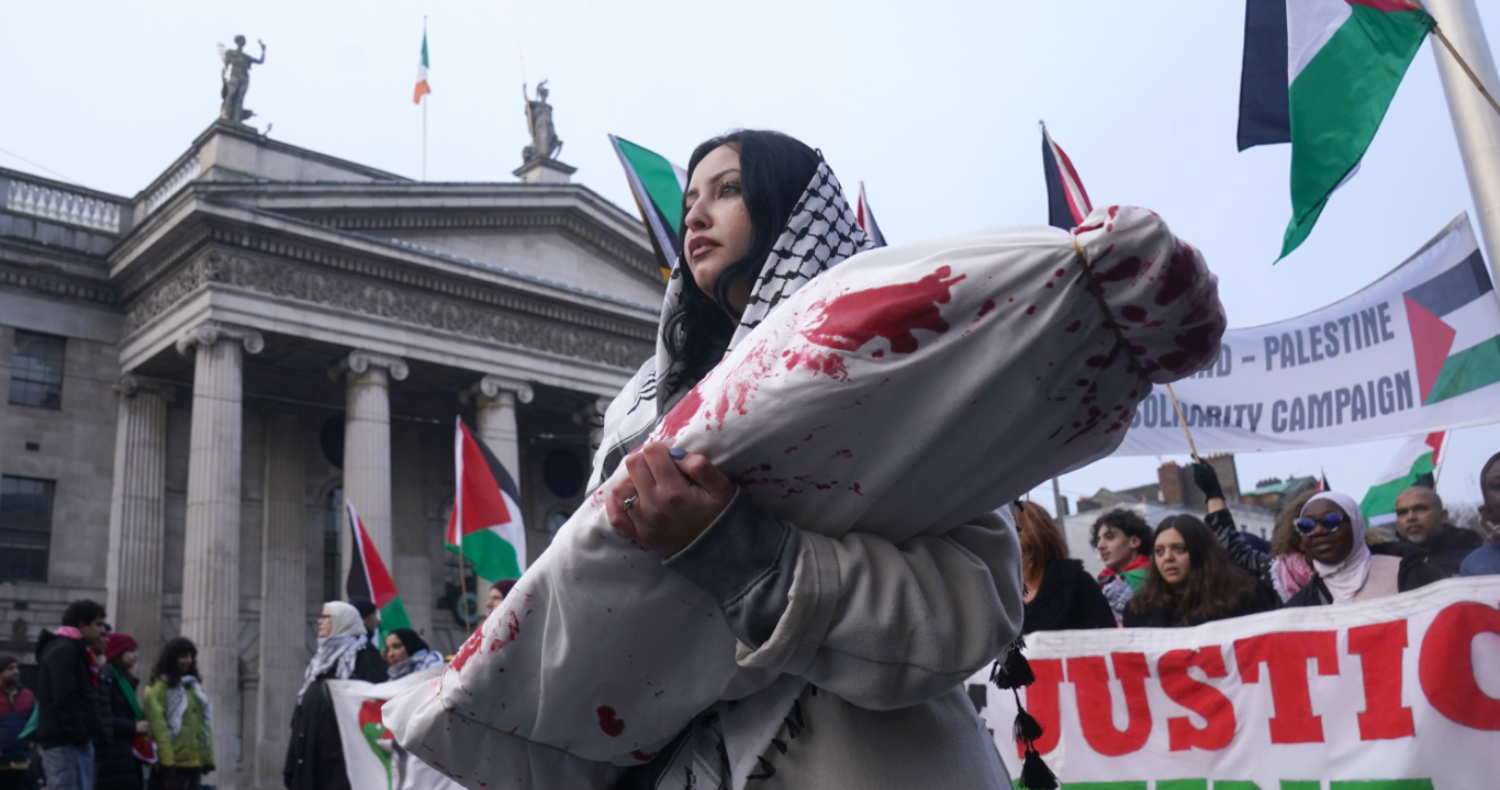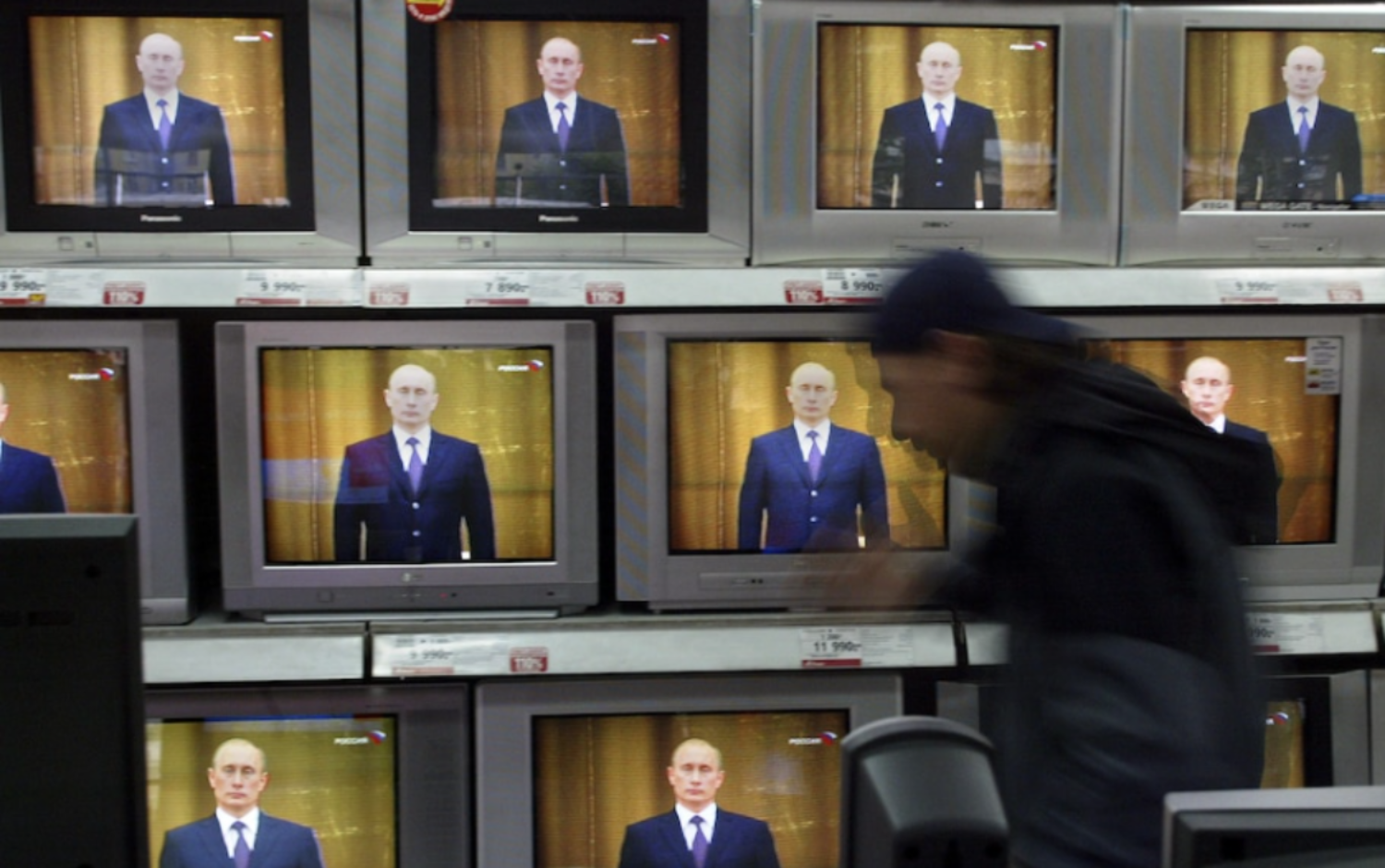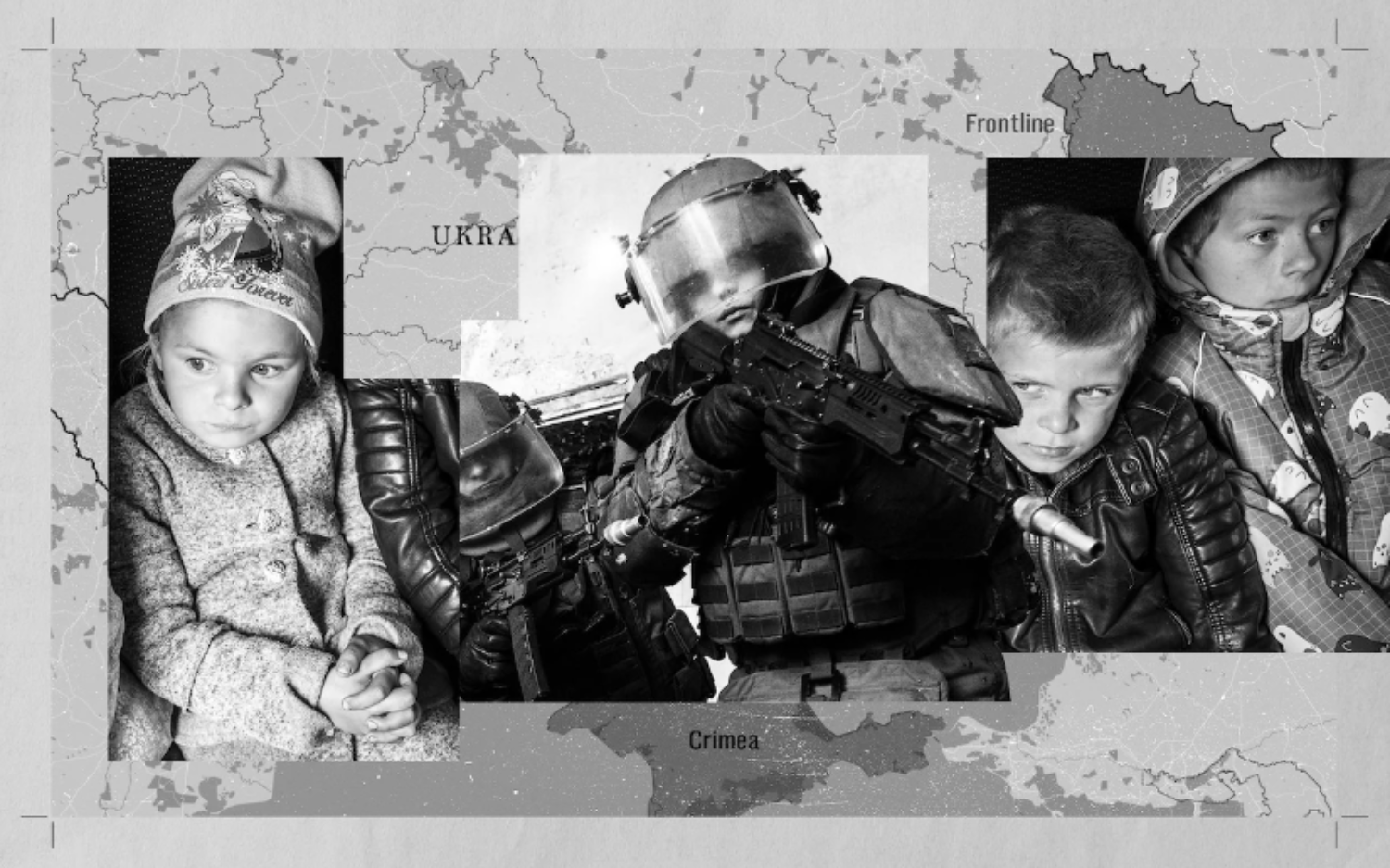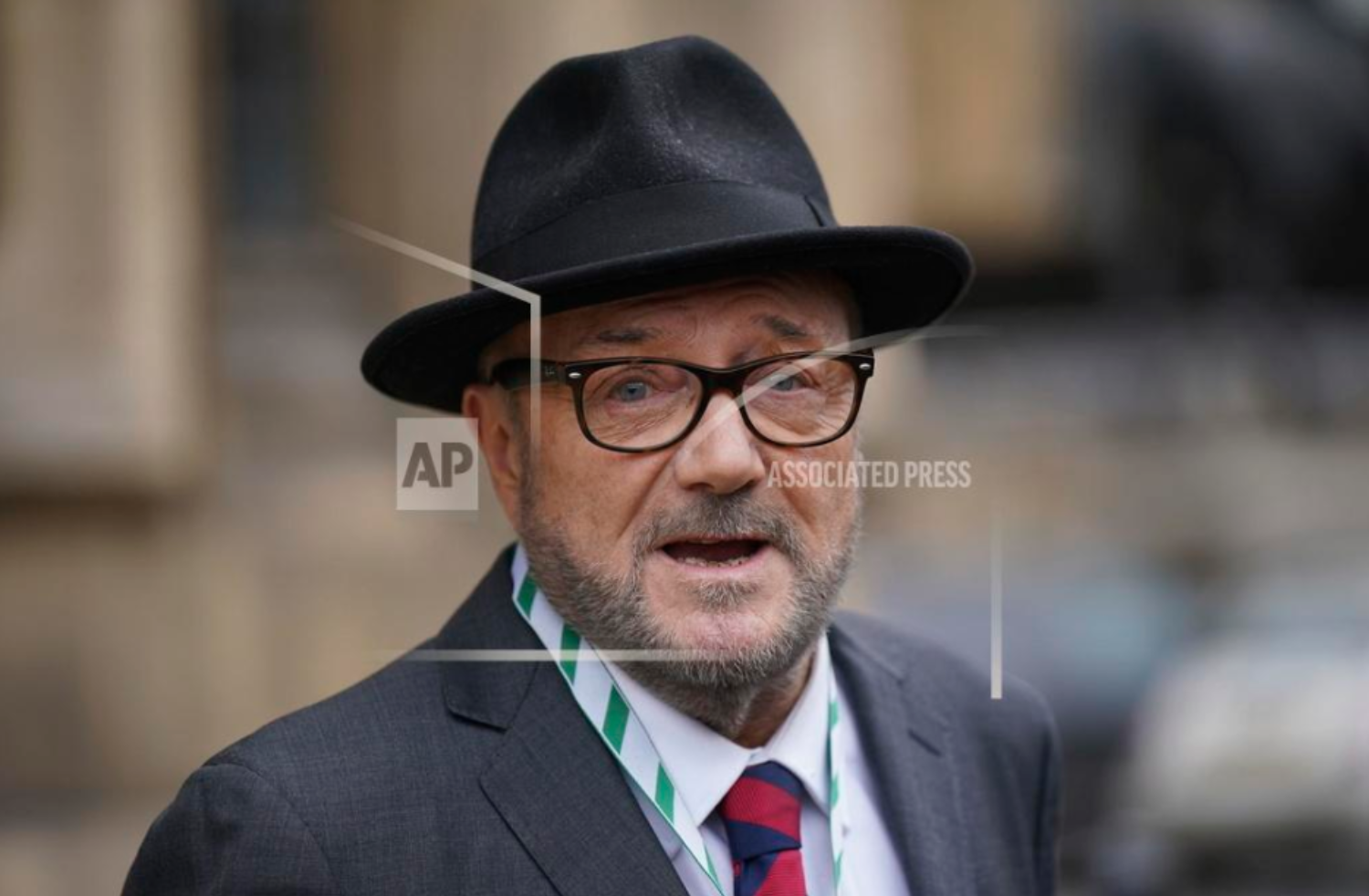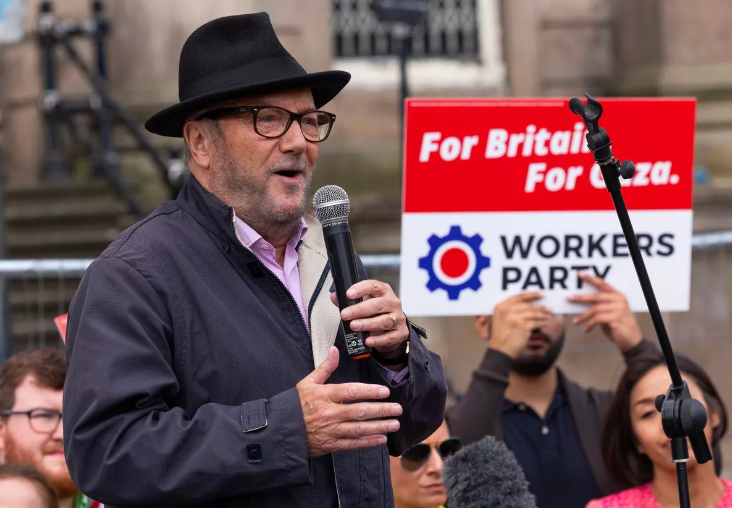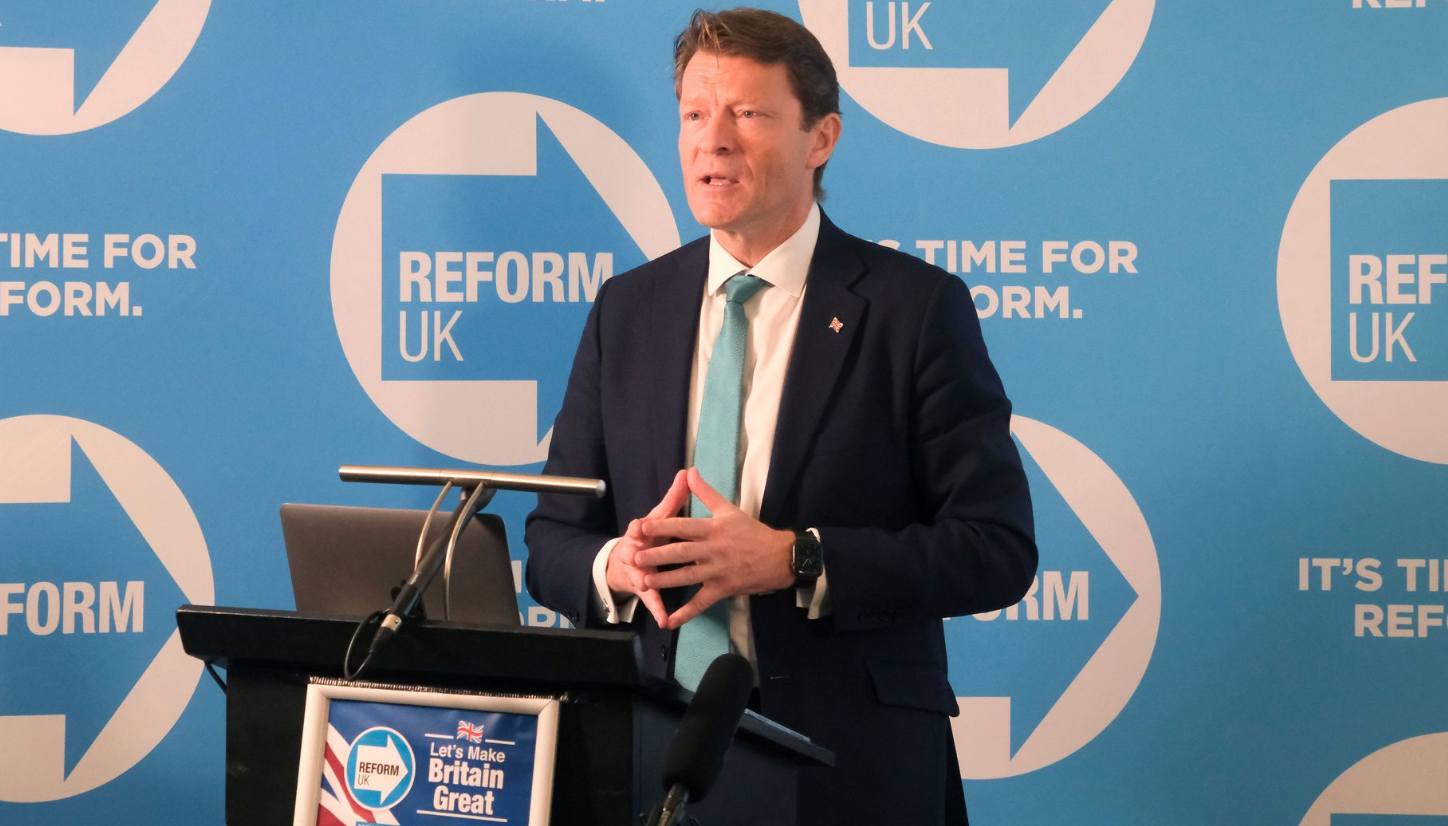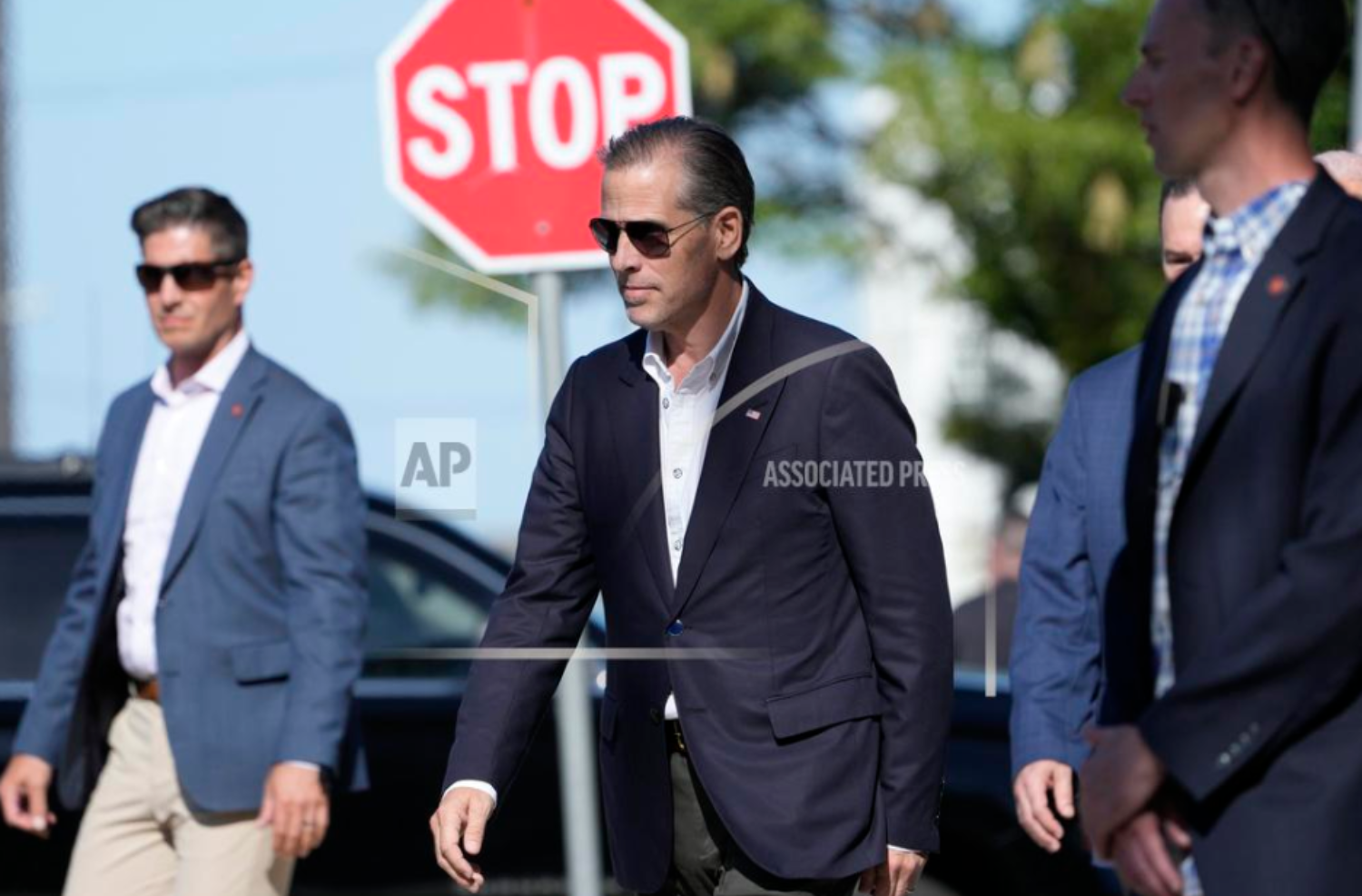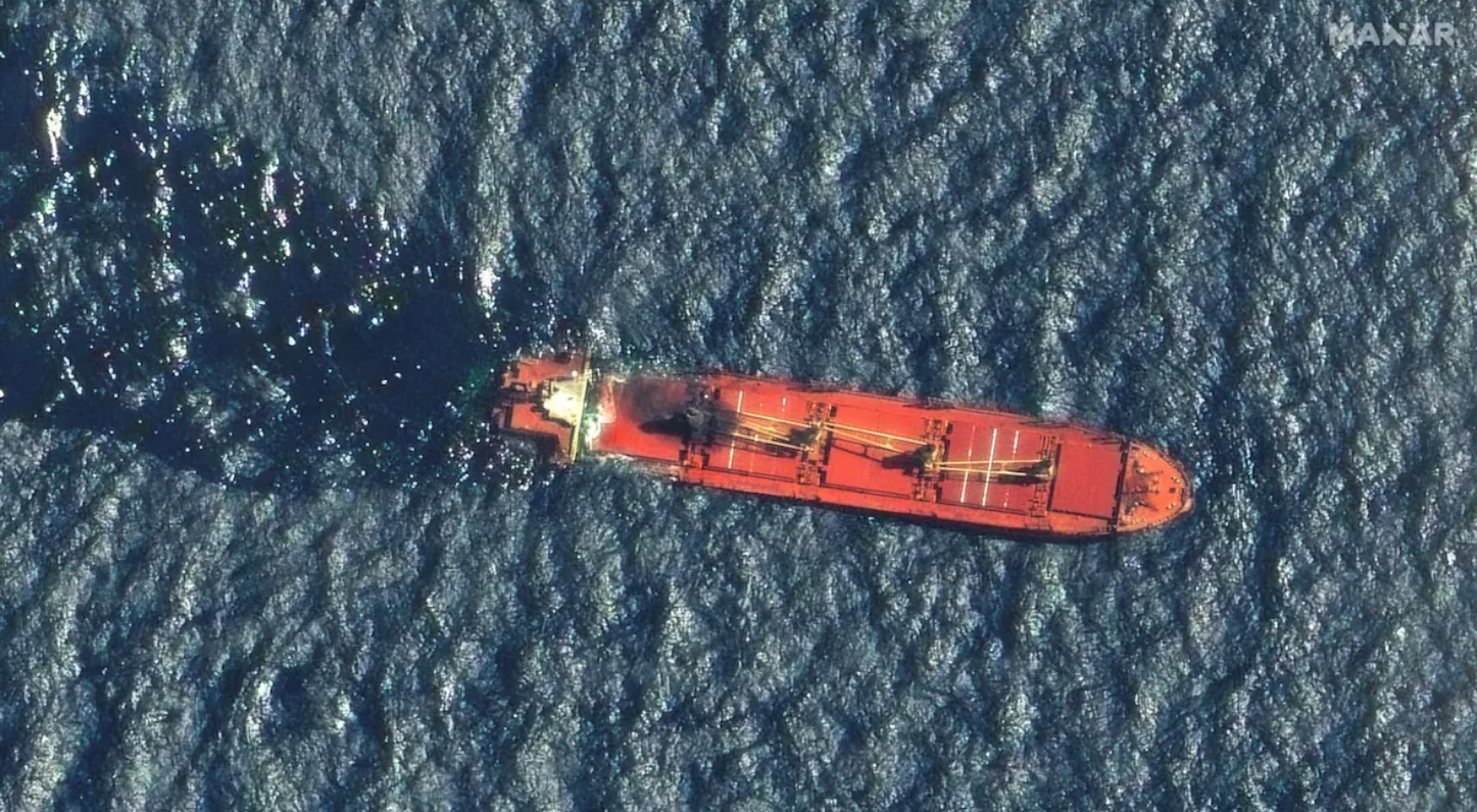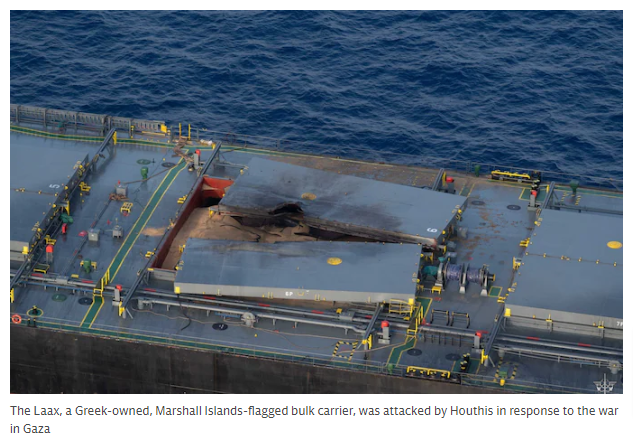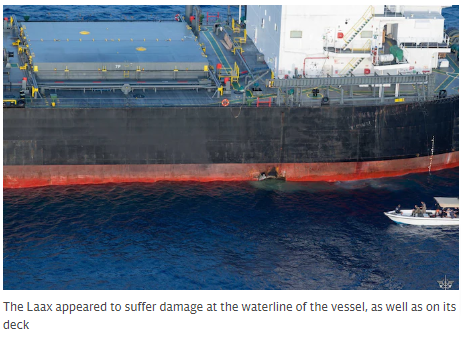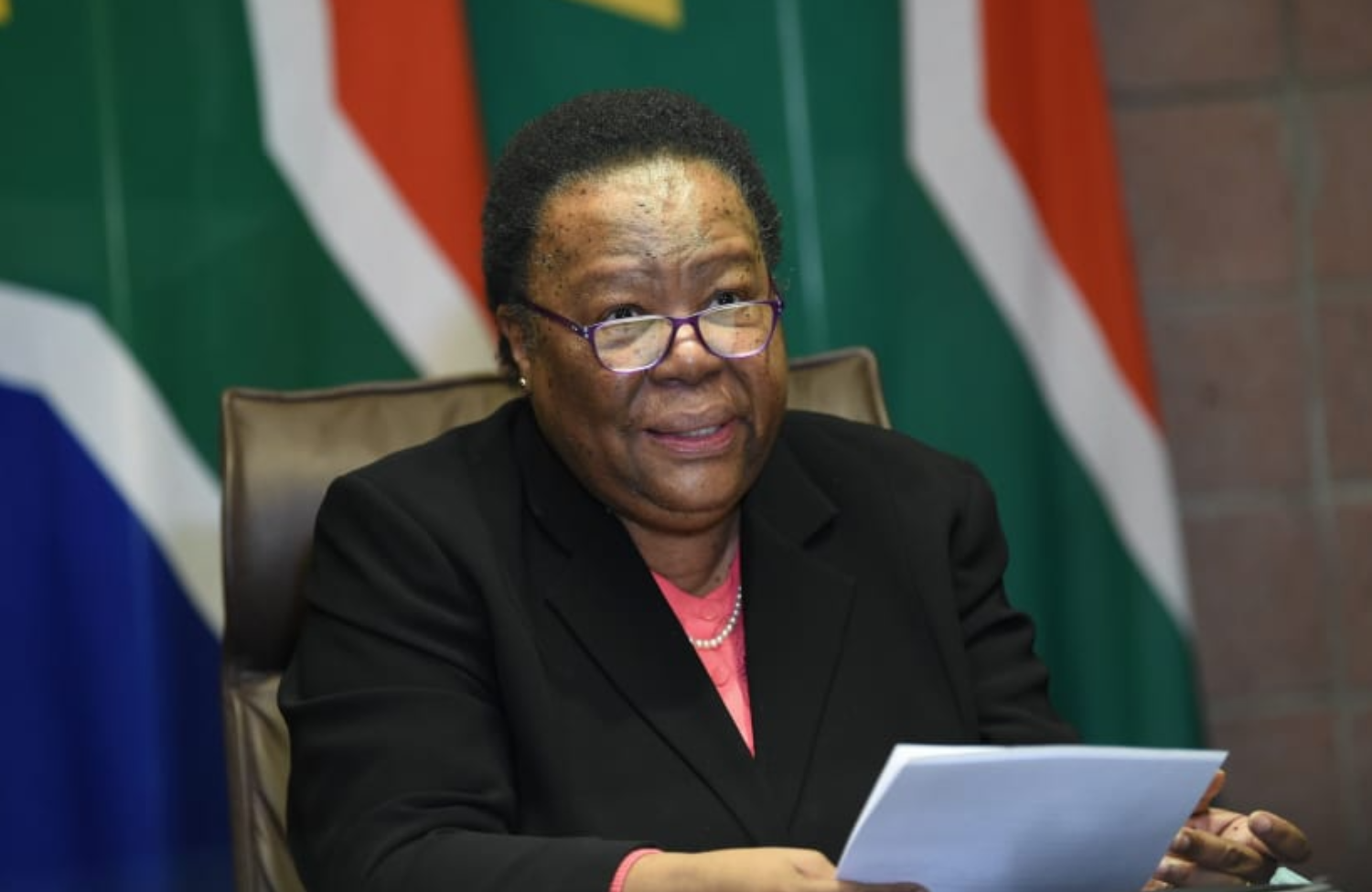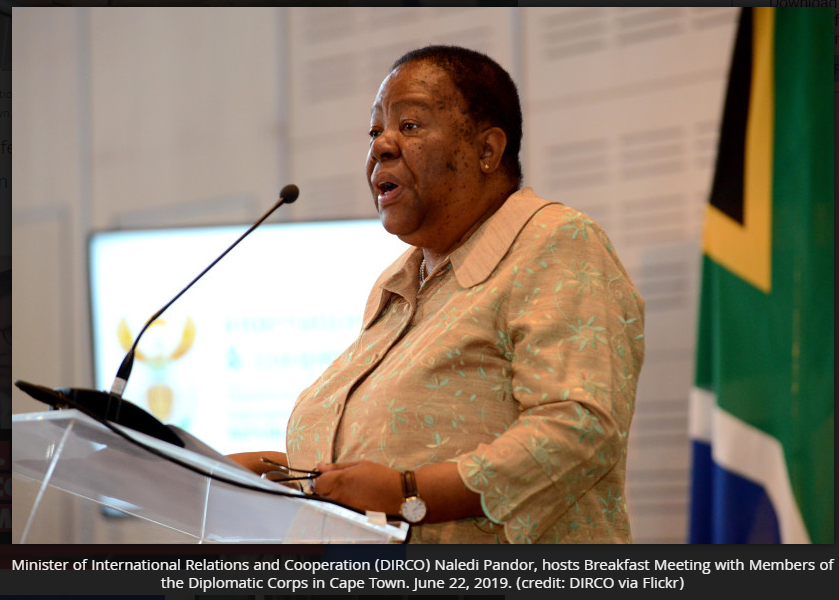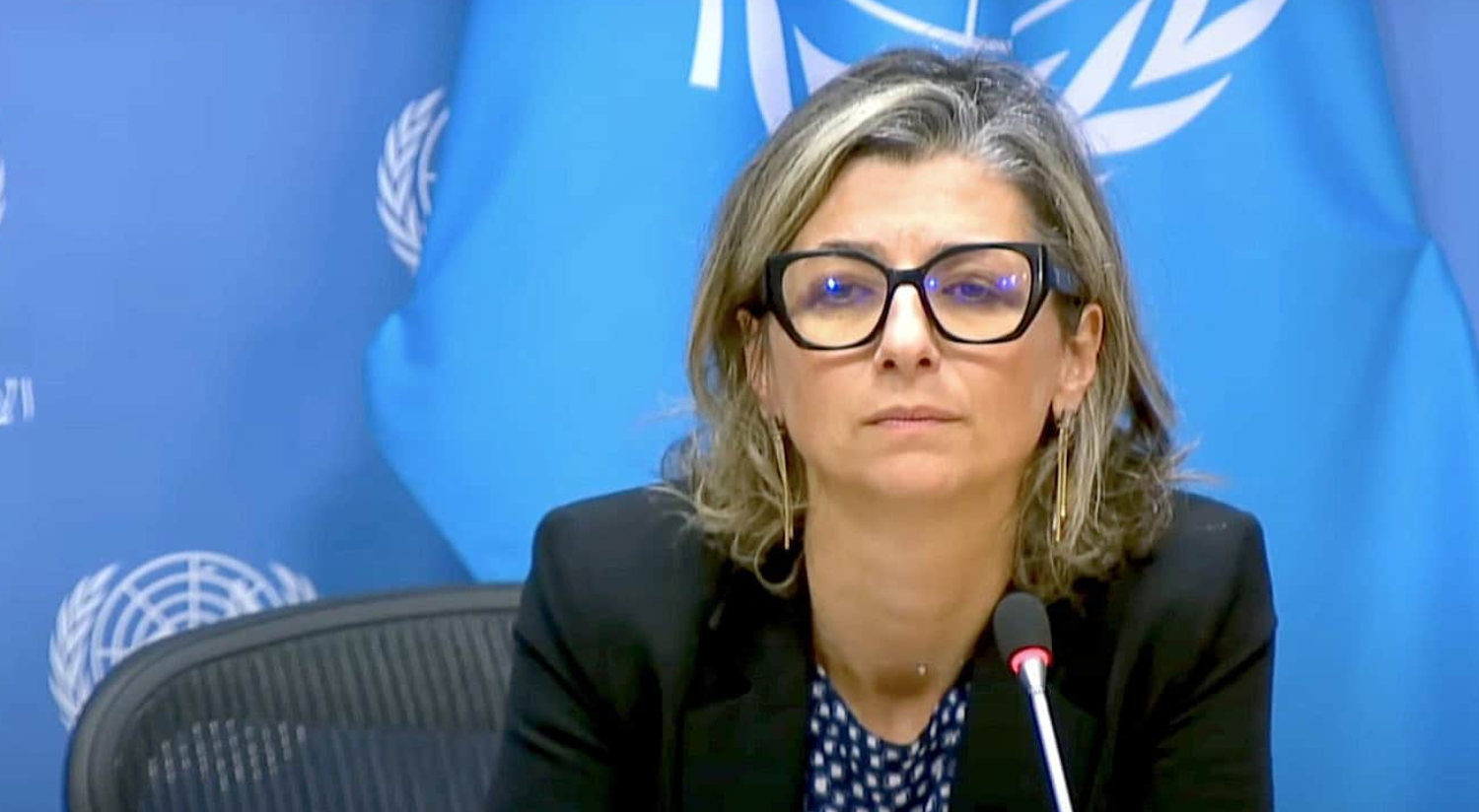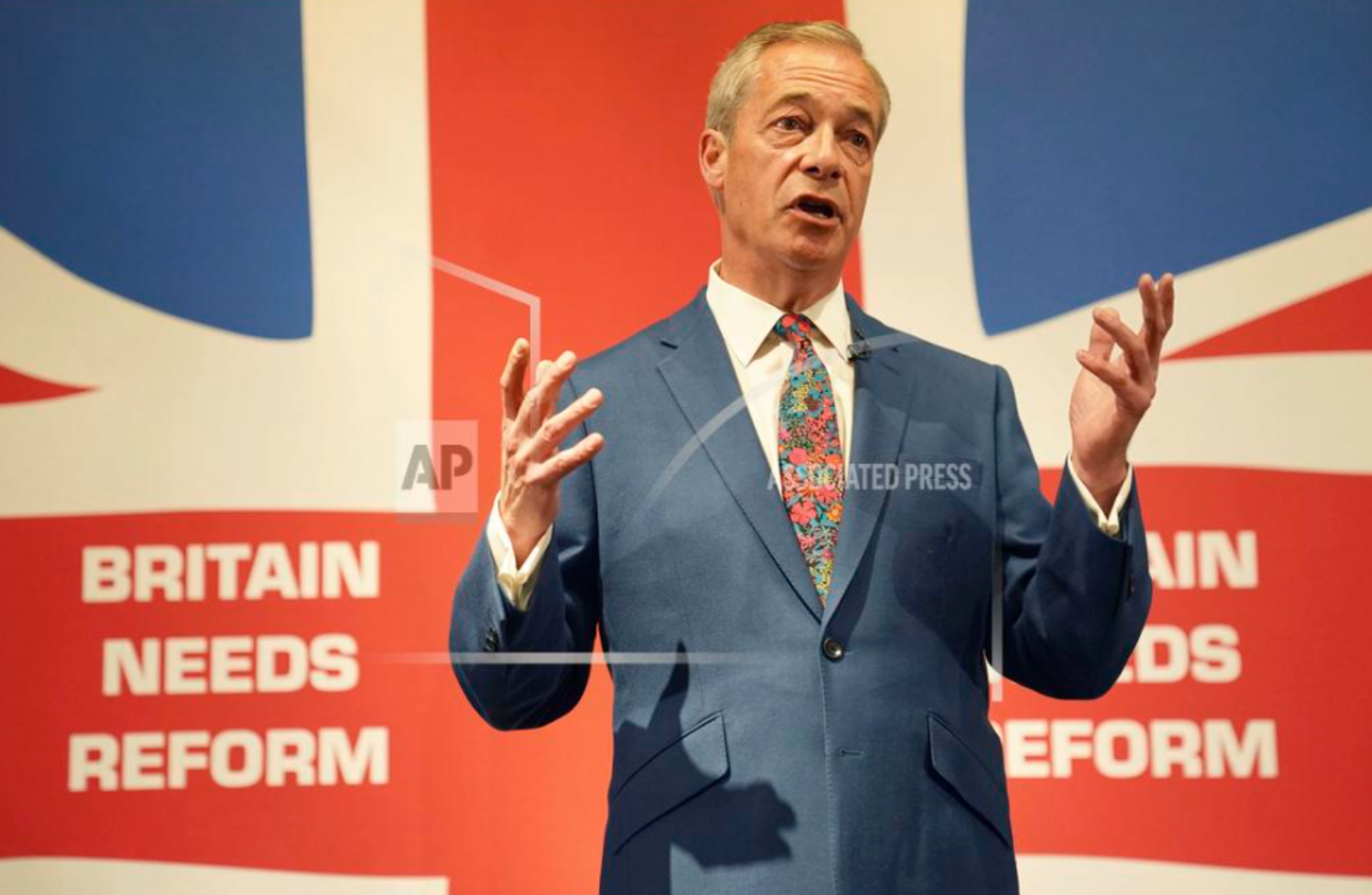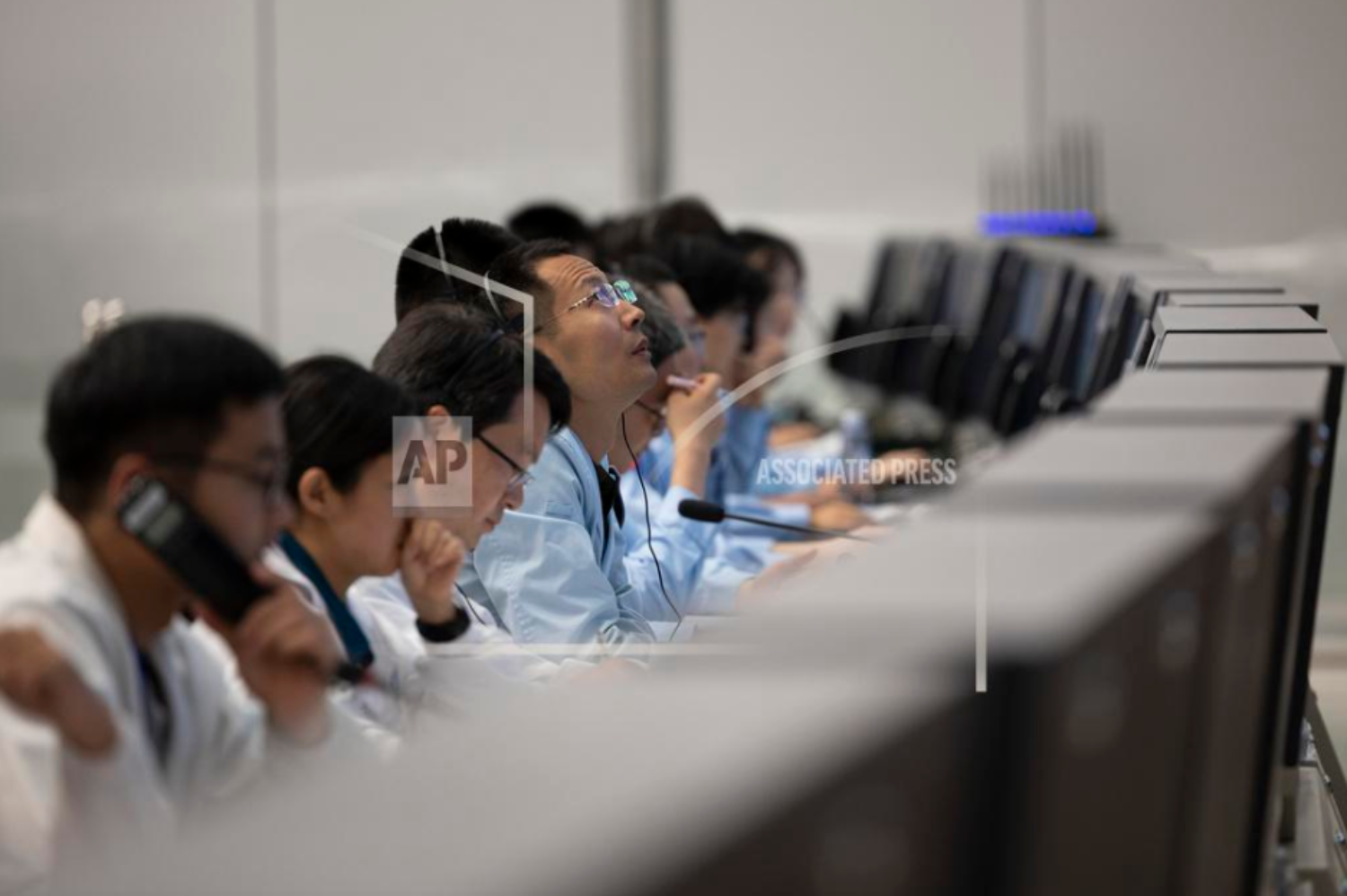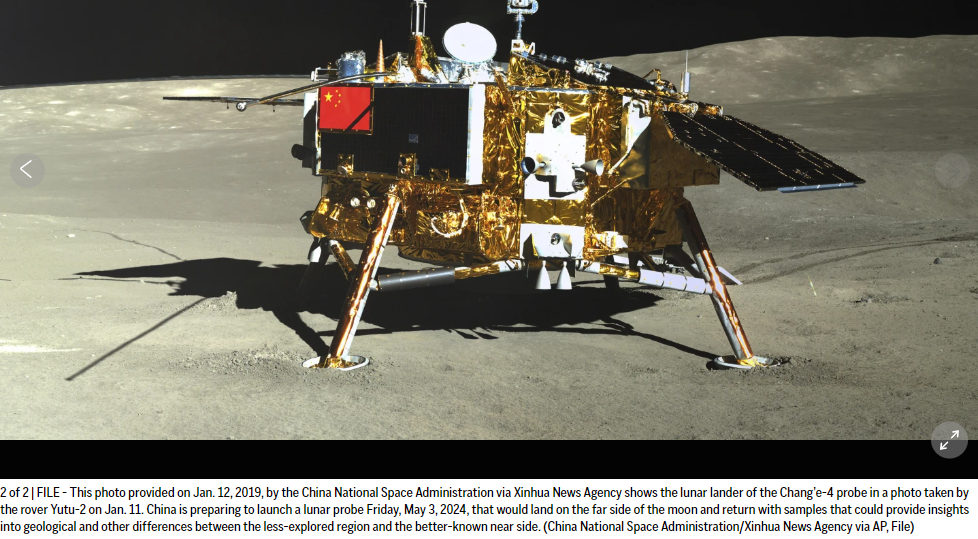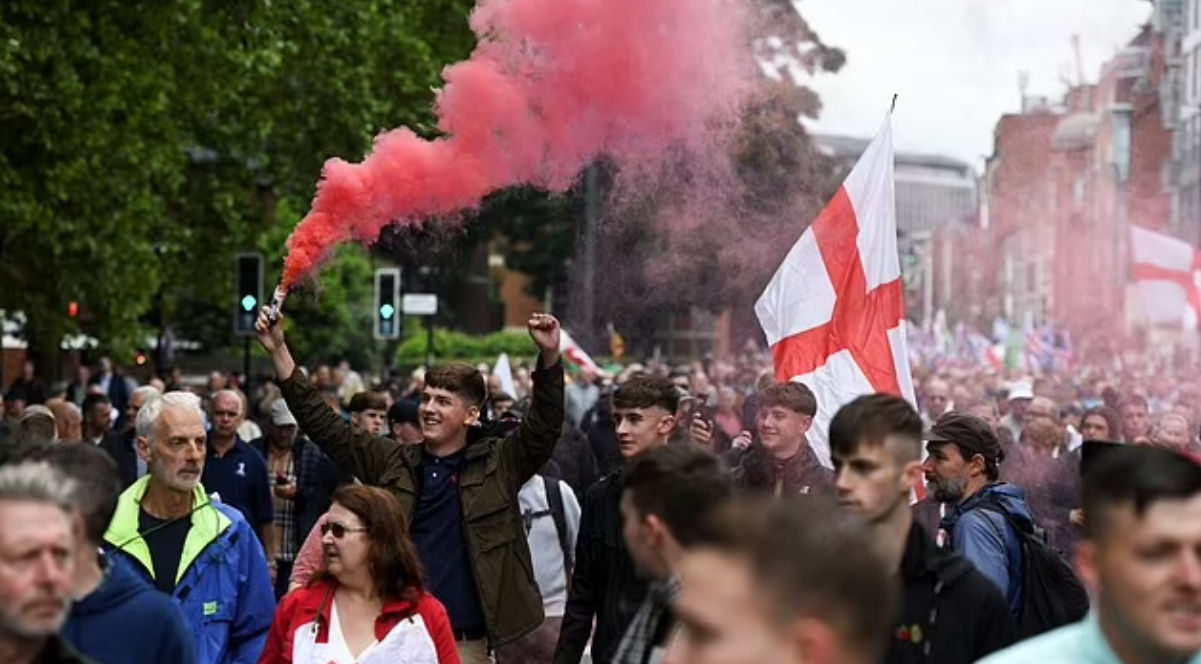-
Posts
10,067 -
Joined
-
Last visited
Content Type
Events
Forums
Downloads
Quizzes
Gallery
Blogs
Everything posted by Social Media
-
The Jewish community in Ireland is grappling with heightened fears and a sense of insecurity amidst the ongoing conflict in Gaza. This pervasive unease was prominently highlighted during a recent meeting between members of the Jewish community and Tánaiste Micheál Martin, where concerns about antisemitism and growing hostility were voiced with a renewed urgency. The meeting revealed distressing instances, such as Jewish children needing to change schools due to an increasingly anti-Jewish environment. These fears were compounded by recent comments from President Michael D. Higgins, who dismissed claims of increasing antisemitism as a "PR exercise" by the Israeli government. Although Higgins did clarify that Jewish people should not be blamed for the actions of the Israeli government, his initial remarks were seen as dismissive of the real and present fears within the Jewish community. Chief Rabbi Yoni Wieder articulated these anxieties, noting that Jewish families, some of whom have lived in Ireland for several generations, are experiencing unprecedented levels of tension. Rabbi Wieder mentioned that some Jewish people are now afraid to publicly identify themselves as Jewish, fearing backlash and hostility. This sentiment underscores a broader issue where Jewish perspectives are being delegitimized, and their safety increasingly threatened. The portrayal of Judaism in Irish education was also brought into question. An example from a religious education textbook, which describes Judaism as believing "violence and war are sometimes necessary to promote justice," contrasts with the more peace-promoting tenets ascribed to other religions in the same text. This portrayal was criticized for potentially contributing to misunderstanding and bias against the Jewish community. The recent Dáil debate on the recognition of Palestine further highlighted the complexities and sensitivities involved. Ceann Comhairle Seán Ó Fearghaíl emphasized the necessity of differentiating between Hamas and the Palestinian people, as well as between the Israeli government and the Jewish community. He reiterated that it was not the aim to make the Jewish community feel "undermined by our justifiable criticism of the unthinkable acts of depravity we have seen happening." While acknowledging the legitimate grievances against Israeli policies, it is essential to critically address the role of Hamas in perpetuating violence and instability. Hamas, recognized as a terrorist organization by the United States, the European Union, and other entities, bears significant responsibility for the ongoing conflict. Their tactics, which include launching rockets from densely populated areas and using civilians as human shields, exacerbate the suffering of both Israelis and Palestinians. Former Taoiseach Leo Varadkar used strong language to condemn Israel’s conduct, and current ministers like Simon Harris have echoed these sentiments. However, it is equally crucial to recognize and criticize the actions of Hamas. Their governance in Gaza has led to a dire humanitarian situation, where resources meant for civilian aid are often diverted to military purposes, including the construction of tunnels and acquisition of weapons. Micheál Martin correctly described recent comments by Rabbi Wieder about the civilian-to-military casualty ratio as "extraordinarily insensitive" and fundamentally wrong. Nonetheless, Martin also acknowledged the importance of ensuring a safe space for all communities in Ireland to debate and express their views. This is particularly important in educational settings, where young minds can be shaped by nuanced and balanced discussions. The recent escalation in Gaza, which has seen over 36,000 Palestinians killed since October 7, according to the Hamas-run Gaza health ministry, highlights the tragic human cost of this conflict. The actions of Hamas, which include indiscriminate rocket fire and embedding military operations within civilian areas, directly contribute to these casualties and perpetuate a cycle of violence. Their refusal to recognize Israel’s right to exist and their commitment to its destruction only serves to prolong the suffering of the Palestinian people they claim to represent. Irish leaders must tread a delicate path, balancing criticism of Israeli policies with an unequivocal condemnation of Hamas’s tactics and ideology. It is not enough to criticize one side while ignoring the destructive actions of the other. The international community, including Ireland, should hold Hamas accountable for its role in the ongoing violence and humanitarian crisis. This includes addressing their use of civilian infrastructure for military purposes and their repression of political dissent within Gaza. In Ireland, this balanced approach must also include protecting the Jewish community from rising antisemitism. The government and society at large must ensure that Jewish people feel safe and valued as part of the Irish community. Historical reflections remind us that during World War II, Ireland did not extend a helping hand to Jews fleeing the Holocaust. This historical context should serve as a cautionary tale, urging contemporary Ireland to act decisively against any form of antisemitism or xenophobia. In light of the complex realities in Gaza, it is critical to maintain a firm stance against the violence perpetrated by Hamas while also advocating for the rights and safety of Palestinian civilians. The actions of the Israeli government, while subject to legitimate criticism, should not overshadow the necessity of addressing the root causes of the conflict, including the extremist actions of Hamas. As Ireland continues to advocate for the recognition of Palestine and work within the EU to bring more countries on board, it must also remain vigilant in combating antisemitism at home. The Jewish community's fears and experiences cannot be dismissed or overlooked. Ensuring their safety and inclusion is not only a matter of justice but also a reflection of Ireland’s commitment to human rights and equality. In summary, while the Irish Jewish community grapples with growing fears and the broader society debates the implications of the Gaza conflict, it is essential to maintain a balanced and critical perspective. This includes recognizing the destructive role of Hamas, protecting Jewish citizens from rising antisemitism, and continuing to advocate for a peaceful and just resolution to the Israeli-Palestinian conflict. Only through such a multifaceted approach can Ireland uphold its values and contribute to lasting peace and reconciliation in the region. Credit: The Times - YouTube - 2024-06-04 Get our Daily Newsletter - Click HERE to subscribe
- 1 reply
-
- 1
-

-
French security officials have successfully foiled a plot to attack a soccer game during the upcoming Paris Olympics, highlighting the nation's heightened security measures as the event approaches. On Friday, Interior Minister Gerald Darmanin announced the arrest of an 18-year-old Chechen national suspected of planning an attack at the Geoffroy Guichard stadium in Saint-Etienne. The suspect, associated with the Islamic State, intended to target spectators and security forces, aiming to die as a martyr. This arrest underscores France's highest security alert level ahead of the Olympic Games, which are set to commence in less than two months. The suspect has been charged with terrorist conspiracy and is currently in pre-trial detention, as reported by the French News Agency. In response to this development, the Paris Olympics organizing committee praised the efficiency and exceptional mobilization of law enforcement agencies to ensure the security of the Games. The Paris Olympics will take place from July 26 to August 11. Security concerns have been significant, particularly regarding the elaborate opening ceremony initially planned along the Seine. Security officials have since persuaded Olympic planners to scale back these plans and reduce the number of attendees to enhance safety. The Olympic torch relay is already underway, surrounded by a "security bubble" comprising 100 officers, including anti-drone specialists and anti-terror police, on its 12,000-kilometer journey. During the first three weeks of the relay, 78 people attempting to disrupt events were arrested, and 30 suspected drones were intercepted, according to the French News Agency. The history of the Olympics is marred by previous terrorist attacks, including the tragic assault on the Israeli Olympic team during the Munich Summer Games in 1972 and the pipe bomb explosion at the Atlanta Games in 1996. In 2020, a teenage Chechen national committed a gruesome attack near Paris, stabbing and beheading a teacher. This past incident and the recent foiled plot highlight the persistent threat of terrorism in France. The successful prevention of this planned attack serves as a stark reminder of the ongoing vigilance required to protect major international events like the Olympics. It also underscores the complex challenges faced by security forces in mitigating such threats in an era of heightened global terrorism. Credit: VOA 2024-06-04 Get our Daily Newsletter - Click HERE to subscribe
-
Recent revelations about the financial ties of a prominent online news site editor to both Russian and Iranian government media outlets underscore the increasing complexity of misinformation campaigns as the U.S. approaches another critical election cycle. Hacked documents reveal payments from Iranian government-funded Press TV to a writer currently working as a Washington-based editor for Grayzone. This editor, Wyatt Reed, has also been associated with Russian state media, highlighting how overlapping foreign influences complicate the identification and tracing of disinformation. Experts warn that this convergence signifies a more sophisticated stage of propaganda dissemination. Emerson Brooking of the Atlantic Council's Digital Forensics Research Lab points out that Reed's deep ties to Iranian state media and his current role at Grayzone—a site known for narrative laundering from Russia—illustrate the intricate web of foreign influence operations. These operations are increasingly hard to detect and combat, raising significant concerns about the integrity of the information landscape as the November election nears. The Press TV documents, released in 2022 by hacktivist group Black Reward, received little initial attention. However, their significance is now clear: they show payments to Reed for contributions to Iranian programming while he was simultaneously working for Russia's Sputnik news outlet. This dual alignment raises red flags about the broader implications of such connections. Grayzone's content, which is highly critical of Iran's regional adversary Israel, and the presence of other contributors with ties to Russian media, further complicate the narrative. The First Amendment protects free speech, including speech funded by foreign entities, but intelligence officials warn that American tolerance for foreign-paid information has made disinformation a critical threat to democracy. Foreign funding for ostensibly independent publications allows these countries to mask their propaganda efforts, evading the scrutiny and labeling typically applied to state-sponsored outlets. Reed’s case is not isolated. Other Grayzone contributors, such as Mohamed Elmaazi and Jeremy Loffredo, also have histories with Russian state media. The payments to Reed from Press TV were made before specific U.S. sanctions against the Iranian outlet, yet attorneys highlight potential legal risks for journalists paid by sanctioned entities without proper waivers. The complexity of these ties is further illustrated by the international dynamics of misinformation. The collaboration between Russian and Chinese media to spread disinformation, as seen in the Solomon Islands’ elections and coordinated narratives on various geopolitical issues, demonstrates the shared tactics and goals of these governments. This convergence makes attributing specific disinformation campaigns to any single country increasingly difficult. Grayzone’s financial backing remains opaque, but its significant following on platforms like YouTube and X (formerly Twitter) shows its influence. The site’s founder, Max Blumenthal, and other contributors have histories in traditional journalism, which adds a veneer of credibility to their work despite the underlying misinformation. Their content, often critical of U.S. foreign policy and supportive of authoritarian regimes, mixes truth with misleading information, complicating efforts to debunk their narratives. A recent example of Grayzone’s controversial reporting is an article by Blumenthal that distorts events surrounding the Israeli-Hamas conflict, accusing Israeli forces of attacks against their own citizens while portraying Hamas in a more favorable light. Such articles demonstrate how misinformation can manipulate facts to serve specific agendas. The involvement of figures like Reed in multiple disinformation networks underscores the challenges facing democracies in safeguarding their information ecosystems. As foreign actors refine their strategies, the importance of critical media literacy and robust legal frameworks to address these threats becomes ever more apparent. Credit: Washington Post 2024-06-04 Get our Daily Newsletter - Click HERE to subscribe
-
Nigel Farage Announces Candidacy and Leadership of Reform UK Nigel Farage has confirmed his candidacy for MP in Clacton and his return as leader of Reform UK. After initially stating he wouldn't stand, Farage made an "emergency general election announcement" this morning. Richard Tice, the former leader of Reform UK, invited Farage to take over the leadership, citing his capacity to lead from the front. Farage expressed that millions would feel let down if he didn't step up, emphasizing his belief that Reform UK will secure seats and potentially surpass the Conservative Party in votes. In a video message, Farage declared his intent to "make Britain great again," signaling his political comeback with a strong message to voters. Reaction from Conservatives The announcement has sparked significant reaction among Conservatives. Former MPs and Cabinet ministers have voiced their frustration over the party's handling of the threat from the right. One former minister criticized the party's "incompetence," while another expressed regret over not forming an alliance with Reform UK to counter Labour. Nadine Dorries, a former Cabinet minister and ally of Boris Johnson, suggested that if Johnson were still leader, Farage wouldn't have felt the need to run. She criticized those who removed Johnson, suggesting their actions might lead to the Conservative Party's decline. A Conservative spokesperson accused Farage of aiding Labour leader Keir Starmer by dividing the right-wing vote, potentially enabling Labour to pursue policies contrary to Farage's lifelong anti-EU stance. They argued that only the Conservatives under Rishi Sunak could offer a secure future for the UK. Implications for Major Parties The announcement has significant implications for both major parties, but particularly the Conservatives. A former Tory Cabinet minister described Farage's move as "bad news for both major parties, but sadly worse news for the Conservatives," acknowledging Farage's influence and ability to attract votes. Farage noted there had been no approach from the Tories for a potential electoral pact, asserting that Reform UK aims to become the primary opposition voice in Parliament. He affirmed Richard Tice's support for his decision, stating Tice is "delighted" with the leadership change. Farage's Vision and Goals Farage believes Reform UK could secure more votes than the Conservatives, aiming for millions more votes than UKIP achieved in 2015. He is focused on addressing public dissatisfaction with current governance, emphasizing a need for boldness to reverse national decline. Farage intends to lead a "political revolt" against the status quo, targeting inefficiencies in public services and broader systemic issues. Campaign Plans Farage will officially launch his candidacy in Clacton tomorrow, marking the start of his campaign. He plans to lead Reform UK not only through the upcoming election but for the next five years, aiming to garner substantial support and effect significant political change. Farage's strategy includes appealing to disaffected voters who might currently lean towards Labour out of disgust with the status quo, encouraging them to support a movement they believe in. Credit: Daily Telegraph 2024-06-04 Get our Daily Newsletter - Click HERE to subscribe
-
President Joe Biden has revealed that Israel has put forward a comprehensive new proposal aimed at achieving a lasting cease-fire in Gaza and securing the release of all remaining hostages taken on October 7. This significant development comes after intensive diplomatic efforts by the Biden administration, involving numerous conversations with leaders from Israel, Qatar, Egypt, and other Middle Eastern countries. "After intensive diplomacy carried out by my team, my many conversations with leaders of Israel, Qatar and Egypt, and other Middle Eastern countries, Israel has offered a comprehensive new proposal. It’s a road map to an enduring cease-fire and the release of all hostages," Biden announced. This statement marks the strongest indication yet of a potential end to the ongoing conflict between Israel and Hamas. According to President Biden, the proposal has been transmitted to Hamas through Qatar, but the terrorist organization that governs the Gaza Strip has not yet formally accepted the plan. "This is truly a decisive moment. Israel has made their proposal. Hamas says it wants a cease-fire — this deal is an opportunity to prove whether they really mean it. Hamas needs to take the deal," Biden stated from the White House podium. The president also addressed the Israeli public, emphasizing the importance of backing the deal. He argued that the Israeli military has already inflicted significant damage on Hamas since the war began, to the extent that a repeat of the events of October 7 is no longer feasible. "The people of Israel should know, they can make this offer without any further risk to their own security, because they’ve devastated Hamas … for the past eight months. At this point, Hamas no longer is capable of carrying out another Oct. 7, which is one of Israel’s main objectives of this war, and quite frankly a righteous one," Biden said. Biden acknowledged that there might be dissenting voices within Israel who oppose the negotiated deal, some of whom are part of the government coalition. "I know there are those in Israel who will not agree with this plan and will call for the war to continue indefinitely. Some are even in the government coalition. They’ve made it clear they want to occupy Gaza, they want to keep fighting for years; the hostages are not a priority for them," he warned. "I urge Israel to stand behind this deal, despite whatever pressure comes." When asked whether Biden believed Israel had effectively won the war against Hamas, senior administration officials clarified that Israel has had success in "degrading Hamas’s military capacity." They noted that the proposal on the table now wouldn't have been possible three months ago. The proposed plan is structured into three distinct phases. The initial phase includes a six-week cease-fire, during which time Israeli forces would withdraw from all populated areas of Gaza, and all remaining hostages taken on October 7 would be released. This phase also includes parameters for internally displaced Palestinians to return to their homes and the beginning of reconstruction efforts in Gaza. According to a senior administration official, each phase would be approximately 42 days long. During the six-week cease-fire, phase one would focus on starting rehabilitation efforts, restoring essential services, clearing rubble, and providing temporary shelters and housing for the people of Gaza. Phase two would involve the release of all remaining hostages, including male soldiers, necessitating another set of negotiations. This phase would also see a permanent cessation of hostilities and the withdrawal of all Israeli forces from Gaza. The third phase entails an extensive three-to-five-year reconstruction program for Gaza, supported by the U.S. and the international community, aimed at the rehabilitation and stabilization of the strip. During the six-week cease-fire, Israel and Hamas would negotiate the necessary arrangements to transition to phase two. However, if these negotiations extended beyond six weeks, the cease-fire would remain in place as long as talks continued, Biden explained. "There are a number of details to negotiate to move from phase one to phase two. Israel will want to make sure its interests are protected, but the proposal says [if the] negotiations take longer than six weeks from phase one, the cease-fire will still continue as long as negotiations continue," he said. "As long as Hamas lives up to its commitment, a temporary cease-fire would become, in the words of the Israeli proposal, a cessation of hostilities permanently." This latest proposal comes less than a month after earlier cease-fire talks, which had sparked optimism, ended without an agreement between Hamas and Israel. The U.S., Egypt, and Qatar had worked tirelessly on that previous truce proposal, which aimed to secure the release of Israeli hostages and pause fighting in Gaza. Friday’s announcement coincides with Israeli forces operating in central Rafah, expanding their military operations despite warnings from the White House against widely targeting the densely populated area in Gaza. The White House had earlier stated that an Israeli strike that triggered a secondary explosion, killing Hamas leaders and dozens of civilians, did not cross a "red line" that would have led to a shift in policy toward aid for Israel. Biden reiterated his commitment to Israel, noting his "lifelong" support for the country and his visit to Israel at the start of the war to reaffirm his backing. "I ask you to take a step back, think what will happen if this moment is lost. We can’t lose this moment," he urged. "Indefinite war in pursuit of an identified notion of total victory will … only bog down Israel and Gaza." Biden has consistently supported the idea of a two-state solution between Israel and Palestine, and senior administration officials suggested that the latest proposal could pave the way for such an outcome in the long term. "We have to have a Gaza with Hamas no longer in power, with Hamas no longer able to threaten Israel," Biden asserted. "When the president talks about the importance of the day after in his speech, all the elements of that are part of a day after." This new proposal represents a significant step toward ending the conflict in Gaza and fostering a sustainable peace. With the international community’s support and a commitment to the proposed plan’s phases, there is a potential path forward that could stabilize the region and lay the groundwork for lasting peace. Biden full WhiteHouse transcipt Credit: The Hill 2024-06-04 Get our Daily Newsletter - Click HERE to subscribe
-
In the wake of former President Donald Trump's conviction on 34 felony counts of falsifying business documents, a recent ABC News/Ipsos poll reveals that about half of Americans believe the verdict was correct and that Trump should end his campaign. This conviction marks the first time a former U.S. president has been convicted of a crime, and Trump has since appealed the ruling. According to the poll, 50 percent of respondents agreed with the New York jury's decision, while 49 percent said Trump should immediately withdraw from the presidential race. Despite the conviction, Trump's favorability rating remained unchanged at 31 percent, consistent with previous polls. The charges against Trump stem from hush money payments made in the weeks leading up to the 2016 election, intended to silence allegations of past affairs with an adult film star. The trial has polarized public opinion, with 47 percent of respondents agreeing with Trump's claim that the charges are politically motivated. A majority of those surveyed, 51 percent, believe Trump intentionally committed wrongdoing, while 12 percent think he acted wrongly but unintentionally. The poll also highlighted significant partisan divides: only 18 percent of Republicans supported the guilty verdict, compared to 83 percent of Democrats. Among independents, a key voting bloc, 52 percent agreed with the verdict. The poll also addressed President Joe Biden's approval rating, which stands at 32 percent, nearly identical to Trump's. Despite Trump's conviction, he still leads Biden by about 1 percentage point in The Hill/Decision Desk HQ average of polls, though Biden has gained ground since the verdict, leading in most polls conducted after Thursday. A separate CBS News/YouGov poll provides further insight into public perception of Trump's trial. It found that most independents believe Trump received a fair trial, with 54 percent agreeing and 46 percent disagreeing. Overall, 56 percent of U.S. adults considered the trial fair, while 44 percent did not. When asked if the jury reached the right or wrong verdict, 57 percent of U.S. adults said the jury was correct, while 43 percent disagreed. Among independents, 56 percent supported the verdict, and 44 percent opposed it. The partisan split was stark, with almost all Democrats (96 percent) affirming the fairness of the trial and the correctness of the verdict, while a large majority of Republicans (86 percent) considered the trial unfair and 82 percent thought the verdict was wrong. The Republican establishment has echoed Trump's condemnation of the trial, labeling it as unfair and politically motivated. Following the verdict, Trump criticized Judge Juan Merchan, calling him "the devil" and denouncing the trial as "rigged" and "a scam." These comments followed a fundraising appeal in which Trump referred to himself as "a political prisoner." The CBS News/YouGov poll, conducted from May 30 to June 1, included 989 U.S. adults and has a margin of error of plus or minus 5.2 percentage points. This poll underscores the deep divisions within American society regarding Trump's legal battles and their implications for his political future. Credit: The Hill 2024-06-04 Get our Daily Newsletter - Click HERE to subscribe
-
Moran Stella Yanai's life took a devastating turn on October 7 when she was abducted by Hamas terrorists. Her story, one of horror and resilience, underscores the brutality of her captors and the ongoing plight of the 125 hostages still held in Gaza. Speaking from her home in Beer Sheva, Israel, Moran shared her experience, surrounded by her art, jewelry, religious texts, and her rescue pets. She was eventually caught by a group of terrorist, who live-streamed a video showing Moran begging for her life in a ditch. “This is one of the Jewish dogs,” a man narrates. Moran, 40, was captured at the Nova music festival in southern Israel, where she had gone to sell her handmade jewelry. As Hamas gunmen attacked, she fled, traversing fields and desert for five hours while sending desperate messages to her parents, convinced she would die. "What haunts her most are the firsthand accounts of rape from other female hostages, whispered to her in captivity. She holds their secrets, not divulging names to protect their privacy, and to not further endanger their lives." Her initial encounters with her captors were marked by her desperate attempts to convince them she was Arab, using her limited Arabic and pointing to a necklace inscribed with her middle name, Stella, in Arabic. Twice she managed to secure her release, but she was eventually captured by a more organized group who beat her and stole her jewelry. In Gaza, her captors paraded her through cheering crowds, a nightmarish experience Moran described as the "biggest party" she had ever seen. Moran's captivity involved severe psychological and physical abuse. She was moved from house to house, each time facing new guards. Though she was not sexually assaulted, she was haunted by the accounts of rape from other female hostages. The United Nations and the International Criminal Court are investigating numerous instances of sexual violence by Hamas militants. Moran's release on November 29, part of a temporary truce where Hamas freed 105 hostages in exchange for a pause in fighting and the release of 240 Palestinian prisoners from Israeli jails, marked the end of a brutal chapter but the beginning of a long recovery. She lost significant weight, became half-deaf from constant explosions, and faced various health issues. The moment of reunion of Moran Stella Yanai, with her family members at Sheba Hospital Moran continues to advocate for the remaining hostages, speaking at protests and meeting with international figures to keep their plight in the public eye. "I want my sisters and brothers out of this hell," she said, emphasizing the urgency of their release. Her story is a stark reminder of the inhumane treatment inflicted by Hamas and the ongoing suffering of those still held captive. Read More related article The Illustrated Hostage Diary of Moran Stella Yanai She was held captive by Hamas in Gaza for 54 days. Now released, she tells her story. Credit: Washington Post 2024-06-04 Get our Daily Newsletter - Click HERE to subscribe
-
If Russia triumphs in its ongoing invasion of Ukraine, the world must prepare for what could be one of the worst genocides since the Holocaust. Russia's strategy involves not just military conquest but a systematic campaign of ethnic cleansing, sexual violence, and mass deportations aimed at eradicating Ukrainian identity. As the conflict surpasses 800 days, it is crucial to move beyond abstract military maps and grasp the severe human realities at stake. From the beginning, Russia has exhibited a clear genocidal intent towards Ukraine. Russian President Vladimir Putin's 2021 essay, "On the Historical Unity of Russians and Ukrainians," dismissed Ukrainian sovereignty, asserting that Ukrainians are essentially Russians misled by external forces. This ideology is supported by the Kremlin-controlled Russian Orthodox Church's "trinity doctrine," which claims that Ukrainians and Belarusians are part of the Russian nation and must be "reunified." Russian rhetoric frequently dehumanizes Ukraine, labeling it an "artificial concept" and a "fake country." Such narratives are part of a comprehensive state-sponsored effort to delegitimize Ukraine's existence as an independent nation. The Convention on the Prevention and Punishment of the Crime of Genocide defines genocide as acts committed with the intent to destroy, in whole or in part, a particular group. These acts do not need to be purely physical; actions intended to destroy a group's identity also constitute genocide. Russia's actions in Ukraine—including executions, sexual violence, detentions, torture, and the mass deportation of children—clearly align with these genocidal criteria. One of the most egregious aspects of Russia's genocidal campaign is the forcible deportation of Ukrainian children. As of April 2024, the Ukrainian government has verified the deportation of 19,546 children, though the true number is likely much higher. These children are subjected to Kremlin-approved re-education, forced to adopt Russian culture and language, and sometimes even inducted into military training. High-ranking Kremlin officials have personally adopted deported Ukrainian children, exemplified by Maria Lvova-Belova, Putin’s Commissioner on Children’s Rights, who now faces an arrest warrant from the International Criminal Court (ICC) for her role in these crimes. In territories under Russian control, the erasure of Ukrainian identity is methodical. Schools are forced to adhere to the "Russian standard," erasing Ukrainian history and language. Children are indoctrinated with Russian military-patriotic ideals, creating a direct pipeline into the Russian military. Civilian life in these areas is under constant threat, with pro-Ukrainian individuals facing deportation or execution, and access to basic goods and services being used as leverage to force Ukrainians to adopt Russian citizenship. Russia's ethnic cleansing efforts involve repopulating occupied Ukrainian areas with Russian citizens, altering the demographics to solidify control and complicate future reintegration into Ukraine. The Kremlin claims to have relocated over 4.8 million Ukrainians to Russia, including 700,000 children, though these figures are unverifiable. This mass movement under coercive conditions highlights the extensive scale of Russia's efforts to dismantle Ukrainian society. While international legal systems, such as the ICC, have taken steps to address these atrocities, they are often reactive rather than preventive. High-profile war crimes like those in Bucha and Kherson have garnered condemnation, but the ongoing, daily genocidal actions behind the frontlines remain harder to track and prove. Russia’s occupation strategy is designed to make the false narrative that Ukraine has no right to exist a reality. Ukraine's battle is not just for its territorial integrity but for the survival of its people. If Russia succeeds, the genocidal project will expand, engulfing more of Ukraine and inflicting unimaginable suffering on millions. The international community must reject any notion of territorial concessions and recommit to supporting Ukraine, recognizing that this conflict is about resisting and defeating an aggressive genocidal campaign. The stakes in Ukraine are extraordinarily high. A Russian victory would not merely redraw borders but result in systematic, large-scale genocide. The world must understand and act against the full horror of this potential outcome, ensuring that Ukraine's fight for survival is supported robustly and unwaveringly. The preservation of Ukrainian identity and sovereignty is essential to prevent one of the most severe humanitarian crises of our time. In many cases, Russia’s genocidal project in Ukraine is banal, mundane, and hard to track and prove. But every aspect of Russia’s occupation of Ukraine is deliberate and flows from Putin’s initial justification for the invasion. It is meant to make real the Kremlin lie that Ukraine has no right to exist and that there is no such thing as a Ukrainian people. Ukraine is fighting a war for the survival of the Ukrainian people. Russia’s genocidal project is the purpose of Russia’s military operations, and Ukraine’s supporters must not separate the two. Should Ukraine fall to Russia on the battlefield, the rest of its people will fall victim to the genocidal project Russia is conducting in the lands it already controls, which “only” constitutes about 20 per cent of the country’s legal territory. Imagine how many millions would be victims of this abhorrent behaviour if it reaches 30 per cent, 40 per cent, or even 100 per cent. Indeed, many military experts would argue that Nazi-style tactics would be the only way to quell a population so vehemently opposed to Russia’s control. We would see horrors unfold daily. We must face this reality squarely and stop blithely talking about offering “territorial” concessions to “stop the fighting” without forcing ourselves to confront the horrors that such concessions will inflict on the people living in those lands. Putin’s invasion was never about seizing limited bits of land. It was always about destroying a people. Ukraine’s supporters must therefore recommit themselves to the project of saving this people and showing that they will resist and defeat aggression and genocide on this scale. Karolina Hird is Russia Deputy Team Lead and Analyst at the Institute for the Study of War in Washington DC. Credit: The Daily Telegraph 2024-06-04 Get our Daily Newsletter - Click HERE to subscribe
-

Israel is at War - General discussion (pt3)
Social Media replied to Social Media's topic in The War in Israel
Posts contravening community standards have been removed. This is not about history or making unsubstaniated claims, you all know the rules by now. Please keep within them or posts will be removed and a warning issued. -
In a heartbreaking incident in northern Italy, three young friends were captured in a final embrace before being swept away by sudden flash floods along the Natisone River. The victims, Patrizia Cormos, 20, Bianca Doros, 23, and Cristian Molnar, 25, were enjoying a stroll near Udine in the Friuli region when the river surged dangerously after days of torrential rain. On that fateful Friday, the group walked to a small island in the middle of the river, unaware of the imminent danger. They were last seen alive standing thigh-deep in the swirling waters. A video taken at the scene, during rescue efforts, showed the trio hugging each other, trapped by the rising torrent and unable to reach the riverbank. “We threw them a rope, but they were literally swallowed up by the flood waters in front of our eyes. We watched them disappear,” said Giorgio Basile, the chief of the provincial firefighters in Udine. The emotional account underscores the devastating power of nature and the helplessness felt by the rescuers. Two bodies, believed to be those of Ms. Cormos and Ms. Doros, were found about a kilometer from where they were last seen, as the search continued for Mr. Molnar. The two women, both Romanian, and Molnar, also Romanian, were reported missing after the river’s swift currents carried them away despite rescue attempts. The tragedy began with an emergency call made to police around 1:35 pm on Friday. Firefighters arrived swiftly at the scene and tried to throw a rope to the stranded friends from a nearby bridge. A firefighter urged them to stay together, but the powerful current was relentless. The search has involved drones, boats, and divers, combing the river since the incident. A handbag containing the mobile phone used to make the emergency call was recovered, providing a grim reminder of their last moments. “The main element is not so much the rain, it is the power of the river, the very strong currents,” said Mr. Basile. “There are gorges, there is a backwash of water and even for the experts it is a particularly treacherous task.” Ms. Cormos was a student at the Academy of Fine Arts in Udine. She had asked her mother for permission to join her friends for a drive after finishing an exam. Ms. Doros, who was studying economics in Bucharest, had recently arrived in Udine to visit her parents, while her boyfriend, Mr. Molnar, had traveled from Austria. The families of the victims had not made any public comment by late Sunday. However, Ms. Cormos’ mother was quoted by the Italian daily, Corriere della Sera, expressing her regret and sorrow. “I had told her not to go, because she was tired,” her mother reportedly said, in tears. “But she said, ‘We are just going to hang out for a bit and take some photos. Come on mum, don’t be angry’.” Michele De Sabata, the mayor of Premariacco, a nearby town, expressed his condolences and sympathy on behalf of the community. “They found themselves in an unpredictable situation. Those who live in Premariacco know the river and how conditions can change quickly. The three kids arrived when it was sunny. They could not have known what was about to happen. It only took minutes,” he said. The incident is part of a larger pattern of heavy floods causing widespread chaos across northern Italy in recent weeks, affecting areas such as Milan, Varese, and Cremona. Violent storms struck the Friuli and Veneto regions in mid-May, and more rain is forecast for the northern part of Italy. As the community mourns this tragic loss, the events serve as a stark reminder of nature’s unpredictable and often deadly force. The families and friends of Patrizia Cormos, Bianca Doros, and Cristian Molnar are left to grapple with their grief, while the search for Mr. Molnar continues in hopes of bringing closure to his loved ones. Credit: Daily Telegraph 2024-06-03 Get our Daily Newsletter - Click HERE to subscribe
-
George Galloway, the leader of the Workers Party of Britain, has reiterated his controversial views on homosexuality as he launched his party's campaign in Tameside. Galloway, who won the Rochdale by-election in January, is now seeking re-election on July 4 and has expressed confidence in his chances across Greater Manchester. Speaking to a crowd outside Ashton Town Hall, Galloway announced that he is one of 326 Workers Party candidates campaigning nationwide over the next five weeks. He emphasized his optimism for success in Greater Manchester, citing his recent electoral victory in Rochdale and the unseating of Labour's deputy council leader in Manchester as indicators of his party's growing influence. However, Galloway's campaign faces scrutiny following remarks he made in an interview with Novara Media, where he suggested that gay relationships were "not normal." These comments were condemned as "blatant homophobia" by the left-wing campaign group Momentum, and Labour MP Chris Bryant expressed his deep unease over Galloway's stance. When asked about the backlash, Galloway responded dismissively, stating, "It hasn't upset any of my constituents. You can take your question round, I'll give you the wards to go to." He defended his position by aligning it with his belief in traditional family values, adding, "I am a family values man, I believe in mum, dad and the kids as the way forward for society. I fully respect other lifestyle choices, I fully respect other orientations, but if we run out of mums, dads and kids, we run out of humanity altogether." Galloway further justified his comments by citing his religious beliefs and conscience, asserting, "In our party are lots of gay people and there are some people who don't agree with my take on these things, and they are fully entitled to that because this is a conscience matter." Despite the controversy, Galloway received a warm reception from the crowd gathered in Ashton, with only one passerby heckling him. He addressed the crowd, calling for support for the Workers Party, saying, "If you want peace, if you want justice, if you want equality, vote Workers Party." Galloway expressed his ambition to secure significant votes in Greater Manchester, specifically mentioning Bury, Oldham, and Ashton as key areas. He criticized both Labour and the Conservatives, describing them as "indistinguishable" and likening them to "two cheeks of the same a***." He promised voters change and hope, claiming that the people of Greater Manchester want respectable political leaders they can be proud of. The Workers Party campaign in Ashton featured members holding signs reading "For Britain, For Gaza," reflecting Galloway's pro-Palestine stance. He argued that voting for his party and other pro-Palestine candidates was the "most effective thing to do" for those concerned about the conflict. Galloway also indicated a willingness to collaborate with other parties if Workers Party votes were needed post-election, though he emphasized that his support would come with conditions, particularly concerning policy on Gaza. As Galloway continues his campaign, his comments on homosexuality and his broader political stance including Gaza will likely remain focal points of debate among voters in Greater Manchester and beyond. Credit: Manchester Evening News 2024-06-03 Get our Daily Newsletter - Click HERE to subscribe
-
In a stark warning to China, Philippine President Ferdinand Marcos Jr. declared that any fatal incident involving Filipino citizens or soldiers as a result of China’s actions in the South China Sea would be considered near an “act of war.” This warning comes amidst an intensifying standoff between the two nations over territorial disputes. Speaking at the Shangri-La Dialogue in Singapore, a security forum attended by global defense chiefs including U.S. Secretary of Defense Lloyd Austin, President Marcos emphasized that any wilful act by China resulting in Filipino casualties would trigger a significant response from the Philippines. "If by a wilful act a Filipino - not only serviceman, but even Filipino citizen - is killed… that is what I think very, very close to what we define as an act of war and therefore we will respond accordingly," Marcos asserted. Rising Tensions and Clashes The dispute between the Philippines and China over the South China Sea has recently escalated into aggressive confrontations. Manila has vociferously protested against Chinese patrol ships firing water cannons at Philippine boats and supply vessels. Beijing, on its part, maintains that it is defending its sovereignty. At the summit, a Chinese military spokesman accused the Philippines of engaging in provocations, further stoking the tension. Observers fear that any significant escalation could lead to a broader conflict involving the United States, which is bound by a treaty to defend the Philippines if it comes under attack. The U.S. has reiterated its commitment to its allies in the region, underscoring the importance of Asia's security to its own. Secretary Austin affirmed, "Our goal is to make sure that we don't allow things to spiral out of control unnecessarily. A war or a fight with China is neither imminent, in my view, or unavoidable." Treaty Obligations and Military Posturing The U.S.-Philippines defense treaty and the recent aggressive interactions have placed both nations in a precarious position. When asked how the U.S. would respond if a Filipino were killed by Chinese actions, Secretary Austin avoided speculation but reaffirmed the U.S. commitment to its treaty obligations. "Our commitment to our treaty with the Philippines is ironclad," he stated. The U.S. has been actively engaging with its allies in the region, holding a summit with the Philippines and Japan and enhancing military cooperation. This includes military exercises and strategic deployments aimed at bolstering regional defenses. The U.S. strategy in the Indo-Pacific, despite other global conflicts, remains a priority. "The United States can be secure only if Asia is secure," Austin noted, listing various military aids and defense agreements to strengthen Asian allies. China's Perspective and Diplomatic Efforts China has reacted strongly to these developments, accusing the Philippines of being emboldened by external powers and breaking its promises over the Second Thomas Shoal, a disputed area where Manila has established a military outpost. The Chinese military also objected to the U.S. sending a mid-range missile system to the Philippines during a recent joint exercise, viewing it as a direct threat to regional security. Despite the tensions, both the U.S. and China have expressed a desire to improve communication to prevent conflicts. Following a meeting between Secretary Austin and Chinese Defense Minister Li Shangfu, both sides agreed on the importance of re-establishing a crisis communications hotline severed in 2022 after Nancy Pelosi’s visit to Taiwan. "I told Mr. Dong that if he calls me on urgent matters, I will answer the phone. And I certainly hope that he'll do the same," Austin said, highlighting the potential for stabilizing the bilateral relationship. Credit: The BBC 2024-06-03 Get our Daily Newsletter - Click HERE to subscribe
-
The use of the term “far-right” to describe political parties like Reform UK is not only unhelpful but also misleading. This broad-brush label triggers visceral reactions and fails to provide a nuanced understanding of the political landscape. As political scientist Tim Bale suggests, distinguishing between the “extreme right” and the “populist radical right” offers more clarity and accuracy. The BBC's Apology and the Fallout The issue came to a head on March 18th when the BBC’s Corrections and Clarifications page issued a statement: “In an article about the Liberal Democrats’ spring conference we wrongly described the political party Reform UK as far-right when referring to polling. This sentence was subsequently removed from the article as it fell short of our usual editorial standards. While the original wording was based on news agency copy, we take full responsibility and apologise for the error.” This retraction followed legal action by Reform UK’s leader, Richard Tice, who argued that the description was “defamatory and libellous.” Tice’s response on social media highlighted that the party was also contacting other news organizations that had used similar language. The BBC’s retraction suggests a recognition of the complexities involved in labeling political entities and a need for more precise terminology. The Problem with “Far-Right” As a political scientist, I argue that applying the term “far-right” to political parties is problematic. This term is often used as a pejorative “boo-word,” generating more heat than light in political discussions. It is an umbrella term that groups together a variety of parties with different ideologies and goals, making it too broad to be meaningful. There is a degree of consensus among scholars that the right-wing spectrum includes two major subtypes: the mainstream right and the far right. The mainstream right encompasses long-established parties like Christian Democrats, Conservatives, and Liberals, who adopt centrist and moderate positions and support the norms of liberal, representative democracy. In contrast, far-right parties are newer, more radical entrants into the political system. They challenge the status quo with hard-core positions and show weaker commitment to democratic norms. This critique can be explicit, with some far-right groups advocating for the overturning of the political system, or more subtle, undermining norms such as respectful discourse and minority rights. Extreme Right vs. Populist Radical Right Within the far-right category, it is crucial to distinguish between the extreme right and the populist radical right. The extreme right often has roots in fascism and neo-Nazi movements. These parties provoke suspicion that they would dismantle democratic institutions if they came to power. The populist radical right, however, is more nuanced. These parties claim to have transcended any extremist roots, focusing instead on nationalism and nativism, which can verge on xenophobia. They emphasize that the needs of citizens should take priority over non-citizens, particularly regarding welfare and housing. What sets the populist radical right apart is its populism. As Cas Mudde explains, this ideology frames politics as a struggle between “the pure people” and “the corrupt elite.” The populist radical right champions popular sovereignty over liberal democracy, which they see as favoring an out-of-touch elite. Reform UK: Populist Radical Right? These characteristics are familiar to anyone who has followed hard-core Brexiteers over the past decade. Reform UK fits more closely with the populist radical right than with the extreme right. This distinction is important not only for political scientists but also for media organizations like the BBC, which must strive for accuracy in their descriptions. Reform UK, like other populist radical right parties, does not engage in ethnic or racial discrimination in the same explicit way as the extreme right. Instead, it advocates for national sovereignty and a form of populism that challenges the political establishment. Mislabeling such parties as “far-right” obscures these nuances and undermines informed political discourse. Credit: London School of Economics and Political Science 2024-06-03 Get our Daily Newsletter - Click HERE to subscribe
-
Russia has initiated border disputes with NATO members Estonia and Finland, sparking concerns among Western security chiefs about potential long-term plans by Moscow to assert control over parts of the Baltic region. This comes amidst ongoing tensions in Ukraine, where Russia continues its offensive. The provocations in Estonia and Finland are seen as part of a broader strategy by President Vladimir Putin to test NATO's resolve and identify weak spots for future incursions. Blinken; "We know that if Russia’s aggression is allowed to proceed in Ukraine with impunity, it will not stop with Ukraine. And other would-be aggressors in other parts of the world will take note and consider pursuing their own aggressions." In recent weeks, Moscow has made moves that have heightened tensions along its borders with Estonia and Finland. Russia issued a draft proposal to revise its sea border with Finland and removed a series of buoys marking the river frontier with Estonia. These actions have been interpreted as deliberate attempts to provoke and destabilize the region. Micael Bydén, Sweden's chief of defense, warned last week that Putin's ultimate goal is to seize control of the Baltic region and use it as a "playground" to "terrorize" NATO members. This sentiment is echoed by diplomats and security experts who believe that these provocations are part of Russia's hybrid warfare strategy, aimed at testing the West's response and finding vulnerabilities for potential future actions. Viljar Lubi, the Estonian ambassador to London, emphasized the unpredictable nature of these provocations, stating, "This is part of this ongoing hybrid warfare: Russia is aggressively trying to destabilize our society and also our support for Ukraine. We need to be well prepared. It is not always easy because you don’t know exactly what the next move is. They go into the so-called grey area, where we don’t know exactly what is next." The removal of buoys in the Narva River by Russian border guards, which Josep Borrell, the EU's foreign policy chief, condemned as an "unacceptable" act, illustrates the provocative nature of these actions. The Narva region, predominantly Russian-speaking and lacking a formal border agreement between Estonia and Russia, poses a significant risk for future Russian incursions. Additionally, Russia's defense ministry issued and quickly deleted a decree that appeared to adjust sea borders around the Gulf of Finland and the Russian exclave of Kaliningrad. Lithuania condemned the move as a "deliberate, targeted escalatory provocation." Kai Sauer, the Finnish ambassador to Germany, noted that Russia's maneuvers were likely influenced by Finland's recent accession to NATO. "In military terms, our threat perception has not changed, but it seems quite clear that we are facing certain hybrid activities," Sauer said. "It is clear that with the Finnish and Swedish NATO membership the geopolitical situation in the Baltic Sea has changed. I think it’s also quite predictable that Russia is adapting to that change but how that will manifest itself is less clear." The Swedish island of Gotland, strategically located in the middle of the Baltic Sea, is another potential flashpoint. Swedish defense chief Bydén warned that Putin aims to control the Baltic Sea, which would have significant implications for Sweden and other bordering countries. "If Russia takes control and seals off the Baltic Sea, it would have an enormous impact on our lives," he said. "We can’t allow that... the Baltic Sea must not become Putin’s playground where he terrifies NATO members." Ukrainian President Volodymyr Zelensky also highlighted the Estonian incident, warning that Russia is preparing for provocations in the Baltic region against NATO borders. Aliona Hlivco, a former Ukrainian MP and managing director of the Henry Jackson Society, drew parallels between the current Baltic disputes and the prelude to Russia's invasion of Ukraine. She noted the region's vulnerability due to its porous borders and significant Russian diaspora, which could be mobilized through propaganda. Western leaders, including German defense minister Boris Pistorius, have expressed concerns about Moscow's rearmament and potential for future aggression. As Russia continues its offensive in northeastern Ukraine, its actions in the Baltic region are seen as part of a larger strategy to destabilize and test NATO. In conclusion, Russia's recent provocations along the borders of Estonia and Finland highlight the ongoing tension and potential threats in the Baltic region. As Western security chiefs warn of Putin's long-term plans, the situation underscores the importance of vigilance and preparedness among NATO members to defend against potential incursions and maintain regional stability. Credit: Daily Telegraph - X - 2024-06-02 Get our Daily Newsletter - Click HERE to subscribe
-
WILMINGTON, Delaware – In an unprecedented legal development, Hunter Biden, the son of President Joe Biden, is poised to become the first child of a sitting US president to stand trial for criminal charges. This event, coming on the heels of Donald Trump's historic conviction, adds a new layer of complexity to the already tumultuous 2024 White House race. Jury selection is scheduled to begin on June 3 in Wilmington, Delaware, marking the start of the first of two cases that Hunter Biden has been trying to avoid for years. His goal has been to stay out of prison and to spare his father the political and personal turmoil as President Biden campaigns for a second term, likely against Trump. The upcoming trial centers on three federal gun violations. Prosecutors allege that Hunter Biden, during a period of intense drug use, lied about his substance abuse on a federal form to illegally purchase a firearm. Special Counsel David Weiss has indicated that the trial will delve into sensitive aspects of Hunter Biden's past conduct, some of which involve the President. Despite the potential political fallout, White House officials consider the trial a private matter related to Hunter Biden's past behavior. President Biden, who plans to travel to France during part of the trial, will monitor the proceedings primarily as a concerned parent who has supported his son's recovery from addiction, according to a source familiar with his thoughts. The White House currently has no plans to publicly engage with the trial. However, this stance could change, and the President might respond to developments as they unfold, the source noted. Hunter Biden’s legal team is prepared to argue that the charges against him are unconstitutional and violate the Second Amendment. They also plan to highlight weaknesses in the government's evidence. Dick Harpootlian, a former South Carolina prosecutor and current state senator, suggested that jurors in Delaware might question the timing and propriety of bringing the case against Hunter Biden now that he has overcome his addiction. The trial is expected to be brief but intense, with prosecutors likely to present evidence of Hunter Biden's drug-fueled past, including excerpts from his memoir, *Beautiful Things: A Memoir*. In their May 20 trial brief, prosecutors pointed out that the book contains numerous admissions by Hunter Biden, demonstrating his awareness of his addiction and drug use in 2018, the year he purchased the firearm. Cheryl Bader, a law professor at Fordham University and former assistant US attorney, expressed skepticism about Hunter Biden’s chances of acquittal, given his admissions in his memoir. She noted that federal prosecutors typically bring cases they are confident they can win. Two of the gun counts carry a maximum prison sentence of 10 years each, while the third count could result in up to five years. However, judges rarely impose the maximum penalties. Hunter Biden's defense team plans to challenge the government's assertion that he bought the gun while he was a drug addict as being constitutionally vague. They will argue that he was not using drugs at the time of the purchase. Furthermore, they intend to claim that the gun seller did not follow legal procedures during the sale and documentation process. In a May 23 trial brief, Hunter Biden's lawyers argued, "Intoxication from too much alcohol or using drugs, legal or illegal, may make it too dangerous for people to drive a car, operate heavy machinery, or possess a firearm one day, but they may be perfectly sober enough to do all those things the next day." David Weiss, who was originally nominated by Trump to serve as the US attorney for Delaware and retained by President Joe Biden, was appointed special counsel by Attorney General Merrick Garland in 2023 to handle the cases against Hunter Biden. Initially, Hunter Biden and Weiss had agreed to a plea deal to resolve both the gun and tax allegations. However, the agreement collapsed under the scrutiny of a federal judge overseeing the case. Supporters of Hunter Biden have argued that Weiss succumbed to political pressure from Trump and conservatives in pursuing the charges. The trial represents another highly politicized spectacle following Trump’s recent conviction in New York on 34 counts of falsifying business records. Hunter Biden also faces nine federal tax violation charges in Los Angeles, with a trial scheduled for September. As the legal drama unfolds, it not only threatens to impact the Biden family personally but also could reverberate through the political landscape, influencing the dynamics of the upcoming presidential election. Hunter Biden’s trial will likely be a focal point in the media and among political commentators, raising questions about fairness, the judicial process, and the influence of politics on legal proceedings. Credit: Straits Times 2024-06-03 Get our Daily Newsletter - Click HERE to subscribe
-
A cargo ship named Laax, carrying grain destined for Iran, was attacked by Yemen’s Houthi rebels in a dramatic escalation of maritime tensions in the Red Sea corridor. This incident, involving a barrage of five missiles, underscores the broader strategy employed by the Iran-backed Houthi group to disrupt maritime traffic amid the ongoing conflict in Gaza. The Laax, a Greek-owned, Marshall Islands-flagged bulk carrier, came under attack on Tuesday. The French navy released images showing significant damage to the vessel, including impacts at the waterline and on the deck. The assault was part of a concerted campaign by the Houthis, which has seen over 50 attacks on shipping since November. These attacks have resulted in the deaths of three sailors, the seizure of one vessel, and the sinking of another. The Houthis, who are supported by Iran, have ramped up their efforts to challenge maritime traffic in the Red Sea. This latest attack is seen as a response to the war in Gaza and the broader geopolitical tensions involving Iran and its adversaries. According to the French navy, the Houthis utilized drones and missiles in their attack on the Laax. While it is not clear whether the newly supplied Ghadr missiles were part of the offensive, there is speculation that they could have been used. The Houthis have been receiving advanced weaponry from Iran, which has been confirmed by the Iranian news agency Tasnim, linked to the Islamic Revolutionary Guard Corps (IRGC). Tasnim reported, “Now, the missile… has become a weapon capable of presenting serious challenges to the interests of the United States and its main ally in the region, the Zionist regime.” Initially, the Laax was listed as traveling to Bandar Khomeini in Iran, but after the attack, the final destination was changed to Fujairah, a port in the United Arab Emirates. The French naval forces, based in the UAE, agreed that the cargo ship was probably bound for Iran. This alteration in the ship's itinerary adds another layer of complexity to the already volatile situation in the region. Iran has consistently denied arming the Yemeni rebel group. However, it is widely understood that the IRGC has been supplying the Houthis with advanced weaponry. The attack on the Laax and the broader pattern of Houthi maritime aggression highlight the escalating threat posed by these enhanced capabilities. In response to the increase in Houthi attacks, the United States and Britain conducted targeted strikes on Houthi positions in Yemen. These strikes, which took place on Thursday, targeted underground facilities, missile launchers, command and control hubs, and a Houthi vessel. American officials described these actions as necessary to curb the Houthi threat in the region. The Houthi television channel, Al-Masirah news, reported casualties from the strikes, stating that at least two people were killed and ten others injured in one of the attacks on a radio building in the port city of Hodeida. The Houthis’ campaign to disrupt maritime traffic is seen as a broader strategy to exert pressure on their adversaries and gain strategic leverage in the region. The Red Sea corridor is a vital maritime route, and any disruption poses significant risks to international shipping and global trade. The attack on the Laax is a stark reminder of the ongoing threat posed by the Houthis and their Iranian backers. This incident also highlights the broader geopolitical tensions involving Iran, the United States, and regional powers. The Red Sea has become a focal point for these tensions, with both sides engaging in a high-stakes game of maritime brinkmanship. The Houthis' use of advanced weaponry supplied by Iran underscores the increasing sophistication of their capabilities and the growing threat they pose to international shipping. The international community continues to monitor the situation closely, with many countries expressing concern over the rising threat to maritime security in the Red Sea. The United States and its allies have vowed to continue their efforts to counter the Houthi threat and ensure the safety of maritime routes. The attack on the Laax is a clear indication of the challenges ahead in maintaining security and stability in the region. In conclusion, the attack on the Laax by Houthi missiles is a significant escalation in the ongoing conflict in the Red Sea corridor. The incident underscores the growing threat posed by the Houthis and their Iranian backers and highlights the broader geopolitical tensions in the region. As the international community continues to respond to these developments, the safety of maritime routes remains a critical concern. Credit: Daily Telegraph 2024-06-03 Get our Daily Newsletter - Click HERE to subscribe
-

US Is Next: South African Minister's Remarks on ICC
Social Media posted a topic in The War in Israel
South African Minister's ICC Comments on Israel Draw Criticism and Raise Concerns South African International Relations and Cooperation Minister Naledi Pandor's recent remarks endorsing the prosecution of Israeli leaders by the International Criminal Court (ICC) have sparked controversy and drawn criticism. Addressing an audience at a mosque in Cape Town, Pandor supported US House Speaker Mike Johnson's assertion that the United States could be next if the ICC targets Israel, a stance that has been seen by many as aligning South Africa with radical anti-Israel sentiment. Pandor’s endorsement of these potential ICC actions against Israel and her inflammatory rhetoric have been criticized for potentially inflaming tensions rather than promoting dialogue or peace. Her claim that countries and officials supporting Israel in its conflict with Hamas would also be liable for prosecution is seen by many as an attempt to undermine international efforts to maintain stability and security in the region. "Nations and officials who support Israel’s war against Hamas will be liable for prosecution as well," she stated, furthering a narrative that some argue could embolden extremist elements. Pandor's remarks also included a personal expression of solidarity with Gaza, which some critics argue detracts from her role as a diplomat supposed to foster international cooperation and peace. "I would wish I were shoulder to shoulder with the men and women in Rafah. That is where I feel I should be," she told the Cape Town mosque audience. Such statements have drawn criticism for being more aligned with militant rhetoric rather than constructive diplomacy. Moreover, her response to criticisms of not being radical enough – recounting that she receives emails urging her to lead a jihad – has been seen as particularly alarming. In a world where diplomatic language is critical, Pandor’s use of such rhetoric raises questions about South Africa’s commitment to balanced and peaceful international relations. The minister's announcement that a group of 140 international lawyers is preparing a class action suit against non-Israelis serving in the Israeli military, including South Africans, further illustrates a shift towards a more confrontational stance that many believe could isolate South Africa on the global stage. These developments reflect a troubling trend in South African foreign policy under Pandor's leadership, where rhetoric and actions seem increasingly geared towards radical positions rather than fostering peace and understanding. Critics argue that such positions risk alienating key international partners and could undermine South Africa's standing in the international community. Related Topic: UK didn’t blitz the IRA Karim Khan ICC Chief Prosecutor Interview ICC Seeks Arrest Warrants for Sinwar and Netanyahu Over War Crimes & October 7 Attack Credit: JP Post - X - 2024-06-01 Get our Daily Newsletter - Click HERE to subscribe -
In the wake of former President Donald Trump’s conviction on 34 counts of falsifying business records, adult film star Stormy Daniels has voiced her belief that he should face prison time. Daniels, who received $130,000 from Trump’s then-lawyer, Michael Cohen, to keep quiet about her alleged affair with Trump, has been a vocal critic of the former president. Following the guilty verdict, she expressed a mix of vindication and ongoing concern for her safety due to threats from Trump’s supporters. Daniels, 45, did not hold back in her comments to the Sunday Mirror. “I think he should be sentenced to jail and some community service working for the less fortunate, or being the volunteer punching bag at a women’s shelter,” she said. Her remarks underscore her belief that Trump is “completely and utterly out of touch with reality” and that he should face significant consequences for his actions. The conviction came swiftly, with the jury deliberating for less than 12 hours. This rapid decision, Daniels suggested, indicated that the jurors found her testimony credible. Despite her relief at the verdict, Daniels revealed the continuing difficulties she faces, including ongoing death threats from Trump’s supporters. She has been living with these threats since she first spoke out about the payment made by Cohen, intended to secure her silence in the lead-up to the 2016 US election. “You always feel like you’re the bad guy, even when you’re not just being up on that standard,” Daniels said, reflecting on the emotional toll of her involvement in the case. She described her time in court as intimidating but was glad that the truth came out during the trial. “It’s not over for me. It’s never going to be over for me. Trump may be guilty, but I still have to live with the legacy,” she added, highlighting the personal cost of her public fight against Trump. The former president’s conviction marks an unprecedented moment in American history, as it is the first time a US president, current or former, has been criminally convicted. The charge of falsifying business records is serious, involving the crime of making false entries with the intent to commit another crime. Trump’s sentencing is scheduled for July 11 at 10 am ET, a date that could further impact his political future. Despite the conviction, Trump’s political support appears resilient. His poll numbers have remained stable throughout the trial, though there is a looming uncertainty about whether they might decline following the sentencing. As the presumptive nominee for the Republican Party, Trump’s legal troubles cast a significant shadow over his campaign and his potential return to the White House. Daniels’ call for Trump to face jail time and her suggestion of community service at a women’s shelter reflect a broader frustration among those who believe that powerful individuals should be held accountable for their actions. Her statements come at a time when public trust in political and judicial systems is deeply tested by high-profile cases like Trump’s. The conviction is a pivotal moment, not just for Trump but for American politics as a whole. It raises questions about the integrity of leaders and the consequences they face for unethical behavior. As Trump awaits his sentencing, the nation watches closely, divided over whether justice has been served and what this means for the future of American democracy. Credit: The Guardian 2024-06-03 Get our Daily Newsletter - Click HERE to subscribe
-
Donald Trump’s conviction on 34 counts of falsifying business records has sparked a flurry of political and legal debates, but one aspect remains certain: he will appeal. Legal experts suggest that Trump has a substantial menu of options for his appeal, and some believe he has a reasonable chance of success in overturning the verdict. Arlo Devlin-Brown, a former federal prosecutor and former chief of the public corruption unit in the Manhattan U.S. Attorney’s office, believes there is merit in Trump’s potential appeal. Trump’s legal team will file the appeal within 30 days of his sentencing on July 11, taking their case to New York’s First Judicial Department appellate court. This court, known colloquially as the "13th juror," has broad discretion to review jury findings, providing a potentially favorable venue for Trump’s appeal. Key Issues for Appeal Trump’s legal team is expected to challenge the legal theory that allowed prosecutors to elevate 34 misdemeanor counts of falsifying business records to a felony case. The trial jury found Trump guilty of falsifying business records to conceal a plot to undermine the 2016 election. However, jurors did not have to agree on a specific unlawful act, leading to multiple theories of how the records violated state election law. This lack of consensus among jurors on a singular unlawful act presents a significant point for the appeal. Devlin-Brown highlights the combination of multiple prosecution theories, limited jury instructions, and the necessity for jurors to agree on the unlawful means as critical issues that could support Trump’s appeal. The appellate division’s structure, allowing judges to make decisions based on both the facts and the law, could work in Trump’s favor, according to Diana Florence, a former Manhattan assistant district attorney. Potential Grounds for Appeal Trump’s appeal might include several key arguments: Exclusion of Expert Testimony**: Trump’s lawyers might argue that the judge improperly restricted a former head of the Federal Election Commission from testifying about whether Trump violated campaign finance laws. Alexander Reinert, a professor of litigation at Cardozo School of Law, notes that Trump's legal team might focus on the exclusion of this testimony as a critical error. Prejudicial Testimony**: Lauren-Brooke Eisen, a former prosecutor and current senior director at the Brennan Center for Justice, suggests that Trump’s lawyers might argue that some testimony allowed during the trial was prejudicial. This includes detailed accounts from Stormy Daniels and testimonies related to the “Access Hollywood” tape, which Trump’s team could claim were irrelevant to the jury’s decision. Recusal and Venue Change**: Trump’s lawyers might also argue that the judge should have recused himself due to potential conflicts of interest, such as his daughter’s work for a consulting firm with Democratic clients. Additionally, they may argue that Trump could not receive a fair trial in Manhattan due to its heavy Democratic demographic and the extensive publicity surrounding the case. Broader Implications and Strategy Trump’s legal team appears to have long viewed the trial as just one step in a broader legal battle. Todd Blanche, Trump’s lead lawyer at the trial, emphasized that the defense's focus has been on the post-conviction process, expressing confidence in a successful appeal. Blanche’s comments on “The Today Show” reflect a strategic approach to the appeal, aiming for a swift vindication of Trump’s rights. The appellate process may delve into complex legal issues, unlike the trial’s focus on more sensational evidence. This shift could benefit Trump, as the appeal will likely scrutinize the legal foundations of the prosecution’s case rather than the salacious details presented to the jury. Credit: Politico 2024-06-03 Get our Daily Newsletter - Click HERE to subscribe
- 71 replies
-
- 10
-

-

-

-

-
UN Watch has accused Francesca Albanese, the UN Human Rights Council's special rapporteur on the Palestinian territories, of serious ethical breaches, including accepting payments from activist groups and promoting antisemitism. The NGO's complaint, filed with UN Secretary General António Guterres and High Commissioner for Human Rights Volker Türk, alleges gross violations of UN rules and professional ethics. The complaint centers on accusations that Albanese accepted honorariums and payments from advocacy groups, which is against the UN code of conduct. As a special rapporteur, Albanese holds a volunteer position, which should remain independent of any external financial influences. The role's expenses are supposed to be covered by a designated UN budget, and receiving payments from governmental or non-governmental sources for related activities is prohibited. UN Watch's complaint includes specific instances of alleged financial improprieties. One example involves communications where a volunteer assistant of Albanese requested that an honorarium offered for her participation in an anti-Israel protest at Columbia University be directed to a research institute supporting her office's work. This request was later denied by another individual, who claimed the request was misattributed to Albanese. The allegations extend to a sponsored trip to Australia in November 2023, reportedly funded by a Palestinian lobby group. This trip, which allegedly cost over $20,000, included media and fundraising events and meetings with pro-Palestinian politicians and civil society members. The Australian Friends of Palestine Association, along with other organizations, publicly claimed they supported Albanese's visit. A connected trip to New Zealand involved efforts to lobby a sovereign wealth fund to divest from Israel-related companies. UN Watch asserts that these actions not only breach the financial conduct rules but also fail to appear in mandated UN disclosure forms, suggesting that the UN did not cover these travel costs. The complaint demands an investigation into these alleged violations, seeking transparency and accountability from the UN regarding the funding sources for Albanese’s travel and detailed records of her meetings. Albanese has previously faced criticism for comments perceived as antisemitic and for justifying terrorism against Israel. Her recent remarks downplaying Hamas's motivations behind the Oct. 7 massacre were condemned by both the French and German governments as scandalous and appalling. UN Watch calls for a thorough investigation, emphasizing that Albanese's support for terrorism and antisemitism, combined with these financial improprieties, severely tarnishes the UN's reputation. The NGO urges the UN to demonstrate its commitment to transparency and integrity by addressing the grave concerns outlined in the complaint. Credit: JNS 2024-06-01 Get our Daily Newsletter - Click HERE to subscribe
-
The increasing levels of mass immigration to Britain are beginning to strain the fabric of British society in ways that cannot be ignored. For the first time in my life, the country is witnessing the emergence of sectarian politics within its political sphere, marked by a rigid adherence to specific religious or ethnic beliefs. This phenomenon is not just a minor political shift but a serious societal problem that threatens to undermine the unity and stability of the nation. The evidence of this emerging sectarianism is not hard to find. Recently, during a local election in Leeds, a newly elected Green Party councillor, Mothin Ali, exclaimed "Allahu Akbar!" upon his victory. This incident, while perhaps celebratory for some, was shocking and outraged many others. Additionally, a pro-Palestinian protest near Downing Street turned violent, resulting in a policewoman being injured by a glass bottle. In Birmingham during the summer of 2022, violent clashes between Hindus and Muslims further highlighted the importation of international political and religious conflicts into British society. The most alarming aspect of this situation is the potential for sectarianism to foster extremism. Sectarian beliefs can create fertile ground for terrorist organizations, which may then commit atrocities with alarming frequency. A poll conducted by JL Partners in April, commissioned by the Henry Jackson Society, revealed that 23 percent of 18-34 year old British Muslims support the concept of jihad. Additionally, one in three Muslims in this age group expressed a desire for Sharia law to be imposed in Britain, which includes severe punishments such as death for apostasy, amputation for theft, and stoning or lashing for adultery. While this poll sampled just 1,000 individuals, the findings are profoundly concerning and should serve as a wake-up call for the entire country. The influence of these sectarian dynamics on political parties is evident. Recently, Angela Rayner, the deputy leader of the Labour Party, addressed a room of Muslim men in her Ashton-under-Lyne constituency, seeking their support for an upcoming election. She promised that Labour supports the International Criminal Court's decision to arrest Israeli Prime Minister Benjamin Netanyahu over allegations of war crimes in Gaza. This pandering to sectarian interests underscores the extent to which British politics is being shaped by these forces. The paradox of the current situation is striking. Some groups appear comfortable with women being reduced to second-class citizens, devoid of voting rights, a stark contrast to the universal suffrage achieved in Britain in 1928. The democratic rights of women are at risk of being rolled back by nearly a century. Reversing this trend is a daunting challenge. The first step must be to ensure that the situation does not deteriorate further. Mass immigration over the past 25 years, under both Labour and Conservative governments, is a significant factor in the rise of sectarian politics. This influx was not subject to public approval, leaving taxpayers without a voice in the matter. Instead of solving problems, mass immigration has created new and complex issues. In the past year alone, according to the Office for National Statistics (ONS), over 300,000 people from the Indian subcontinent and 140,000 from Nigeria have settled in Britain. The question remains: will these individuals fully integrate into British society? Historically, Britain has never experienced such large numbers of young people who not only resist assimilation but also seek to impose their cultural norms on the broader society. This reality must be confronted head-on. Prime Minister Rishi Sunak must address this issue directly, and Sir Keir Starmer, who is predicted to be the next Prime Minister, must have concrete plans to tackle this growing problem. It is crucial for political leaders to engage in an honest and open debate about the impacts of mass immigration and the rise of sectarian politics before the situation worsens. The current election campaign lacks the courage to address these issues, but many politicians, whether on the left or right, share these concerns privately. They owe it to the country to bring these discussions into the public sphere, to ensure that British society can navigate these challenges and maintain its cohesion and stability. Credit: Daily Telegraph 2024-06-03 Get our Daily Newsletter - Click HERE to subscribe
-
In a significant advancement in space exploration, a Chinese spacecraft successfully landed on the moon’s far side early Sunday to collect soil and rock samples, aiming to uncover the differences between this less-explored region and the well-known near side. The landing, at 6:23 a.m. Beijing time, occurred in the South Pole-Aitken Basin, one of the largest and oldest craters on the moon, as confirmed by the China National Space Administration (CNSA). This mission, the sixth under the Chang’e moon exploration program named after the Chinese moon goddess, is the second designed to bring back samples. The previous mission, Chang’e 5, successfully returned samples from the near side of the moon in 2020. The current endeavor is part of an escalating space race between China and the United States, the latter being the longstanding leader in space exploration. Other countries, including Japan and India, are also participating in this growing competition. China has established a notable presence in space with its own space station in orbit and frequent crewed missions. China's ambitious space agenda includes landing a human on the moon before 2030, potentially making it the second nation, after the United States, to achieve this milestone. Meanwhile, the United States plans to send astronauts back to the moon by 2026, marking the first human moon landing in more than 50 years. However, the U.S. efforts have faced numerous setbacks, particularly in the private sector. The planned launch of Boeing’s first astronaut flight was scrapped due to last-minute computer issues, and a Japanese billionaire postponed his lunar orbit mission amid uncertainties surrounding SpaceX’s mega rocket development. NASA intends to utilize this rocket for its lunar missions. In its current mission, the Chinese lander is equipped with a mechanical arm and a drill to collect up to 2 kilograms (4.4 pounds) of surface and subsurface material over approximately two days. The samples will be stored in a metal vacuum container by an ascender atop the lander, which will then transfer the container to an orbiting module. This module will facilitate the return of the samples to Earth, with the re-entry capsule expected to land in the deserts of China’s Inner Mongolia region around June 25. Explorations of the moon's far side are particularly challenging due to its position facing away from Earth, necessitating a relay satellite to maintain communication. Additionally, the far side's rugged terrain offers fewer suitable landing sites. This mission, thus, marks a remarkable achievement in navigating these difficulties and advancing lunar exploration. China’s ambitious space program and its successful missions are reshaping the dynamics of global space exploration. As the country continues to push its boundaries in space, the international community watches closely, recognizing that the future of space exploration is increasingly competitive and collaborative. Credit: AP News 2024-06-03 Get our Daily Newsletter - Click HERE to subscribe
-

Israel is at War - General discussion (pt3)
Social Media replied to Social Media's topic in The War in Israel
Please continue discussions of new ceasefire proposal in one of the topics dedicated for them, thank you. Biden Pushes for End to Israel-Hamas War with New Ceasefire Proposal Israeli Families Claim Netanyahu Requires Positive Polling for Hostage Release Deal Netanyahu Stresses No Permanent Ceasefire Until Hamas Is Crushed and Hostages Freed Hamas Ready for 'Complete Agreement' if Israel Ceases Hostilities -
Thousands of supporters of Tommy Robinson, whose real name is Stephen Yaxley-Lennon, descended on central London today in a dramatic display of nationalist fervor. Balaclava-clad demonstrators, waving the flag of St George and igniting smoke canisters, filled the streets as police made their first arrests. The day’s events underscored the deep divisions and tensions within London. With multiple protests overlapping and a significant police operation in place, the capital saw a day of charged political expression, clashes, and calls for change. As the city returns to normalcy, the impact of these demonstrations on London’s political and social landscape remains to be seen. Credit: Daily Mail - Sky News - X - 2024-06-02 Get our Daily Newsletter - Click HERE to subscribe


